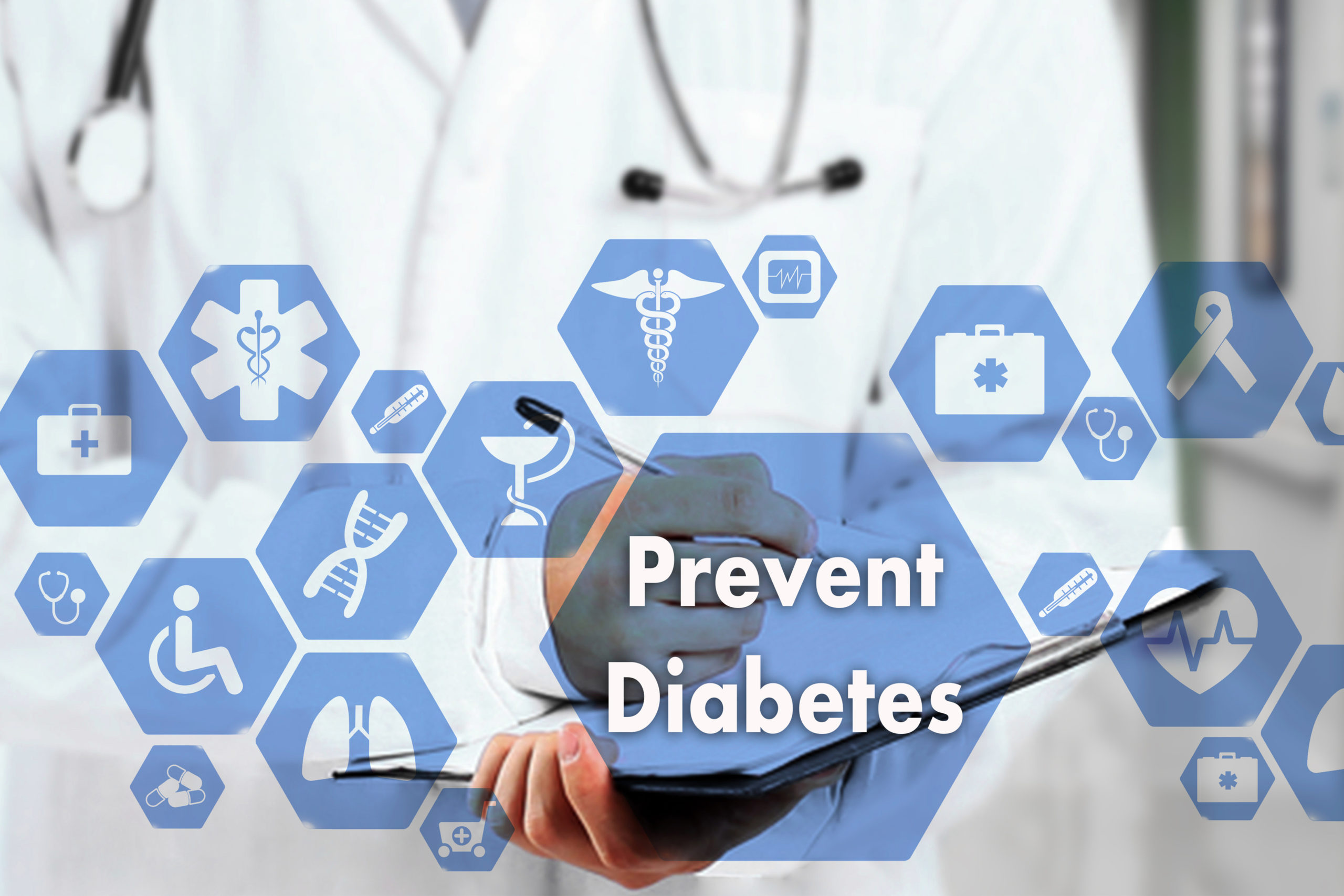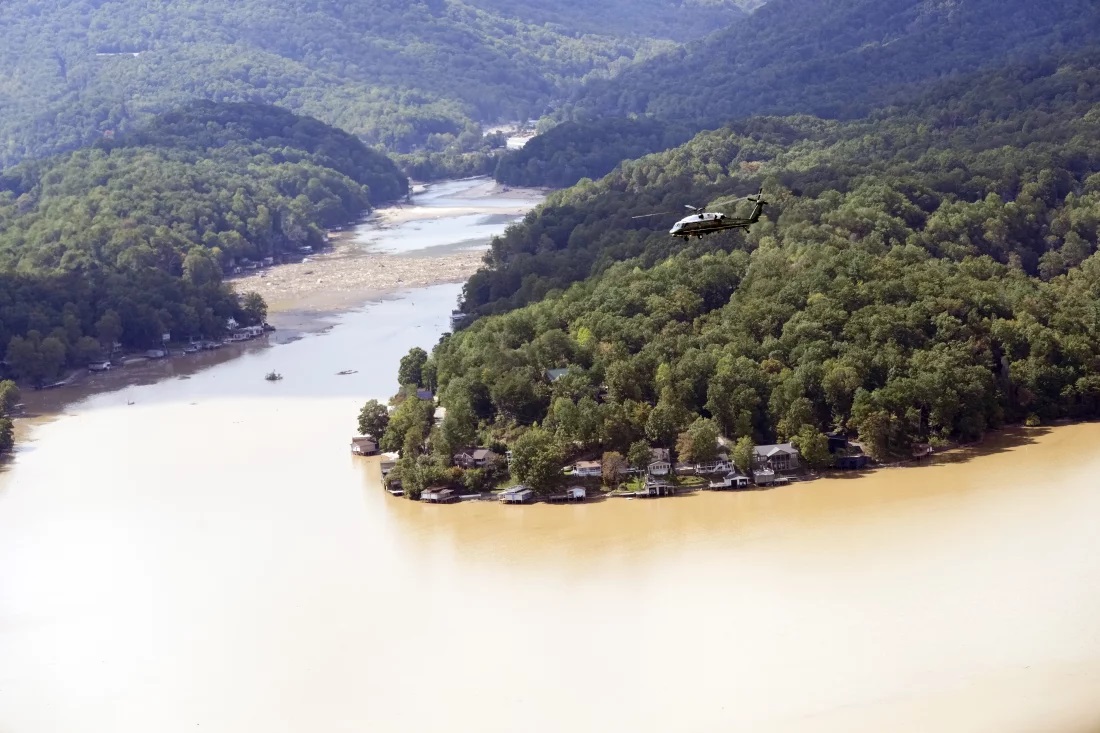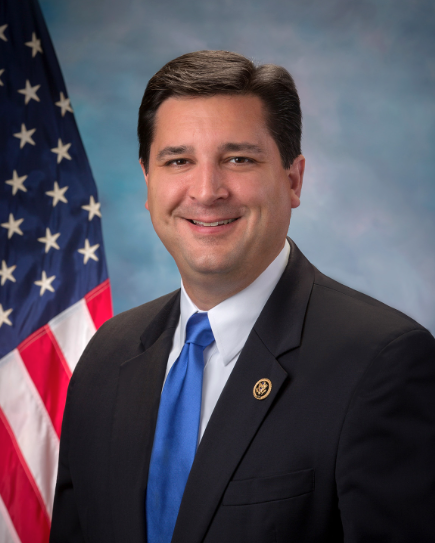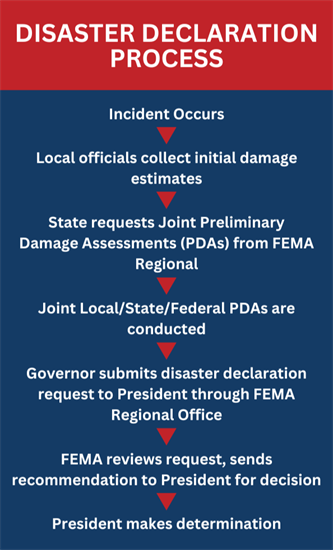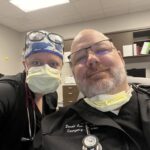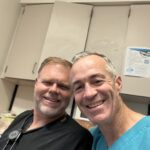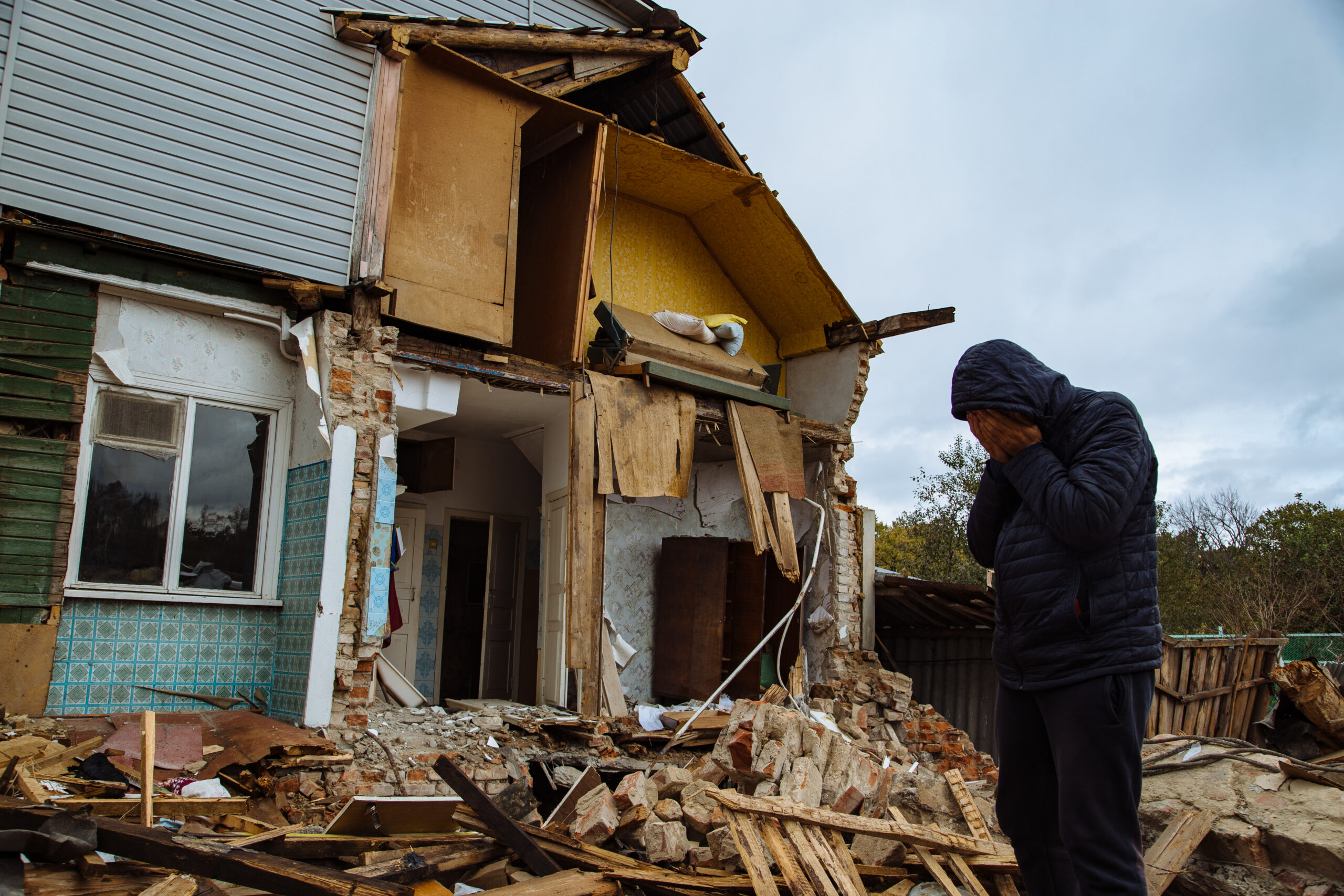NC House and Senate Pass Second Round of Hurricane Relief Funding

SB 743 Transfers $604 million from Rainy Day Fund to assist part of state in long-term recovery efforts
The North Carolina General Assembly returned on Thursday to quickly pass another round of funding needed for Western North Carolina as the region continues to recover from the devastating hurricane that hit last month. SB 743: The Disaster Recovery Act of 2024—Part II transfers $604 million from the state’s Rainy Day Fund to assist that part of the state in their long-term recovery efforts.
“This will be a long recovery, and the legislature will not lose sight of rebuilding the region and fixing the damage,” said Senate President Pro Tem Phil Berger (R-Rockingham). “Our second relief package puts the General Assembly’s total commitment so far at almost $900 million, and that will only grow as we continue to evaluate and repair the damage.”
Highlights from the legislation include the following:
Economic Development
- Allots $5 million to the Economic Development Partnership of North Carolina to advertise and encourage tourism in Western North Carolina;
- Exempts the local-match requirement temporarily for Job Development Investment Grants (JDIG) in impacted areas.
Education
- Appropriates a total of $101.7 million for education, which includes funding for K-12 schools, the UNC System and the state’s community college system;
- Allocates $50 million in K-12 school repairs and $5 million in increased mental health support for K-12 schools;
- Provides $16.5 million for emergency scholarship grants for students at impacted community colleges, UNC System schools and private colleges, along with $5.5 million to cover spring tuition for UNC-Asheville students and $5 million to cover spring tuition for community college students in the area.
Environment
- Provides $139 million to the Department of Environmental Quality (DEQ), including $100 million to be distributed to local governments through bridge loans for water and wastewater repair.
Residents’ Assistance
- Secures $9 million for utility assistance to individuals impacted by the hurricane;
- Allocates $10 million to provide weatherization services to impacted homeowners.
Small Businesses
- Allots $50 million for bridge loans to businesses impacted by the hurricane, with applicants able to qualify for up to $100,000.
Transportation
- Requires the Division of Motor Vehicles (DMV) to extend emission inspection licenses in disaster areas.
On Thursday afternoon, both chambers adopted the conference report to SB 743 by unanimous vote, with a 108-0 vote in the House and 46-0 in the Senate. A copy of the bill text for SB 743 can be found here, and a copy of the committee report can be found here.
Speaker of the House Tim Moore (R-Cleveland) stated that the General Assembly is expected to take up another hurricane relief bill during the November session and that there could be additional legislation proposed in December’s session. “Everything right now is so preliminary. For example, we don’t know what percentage of the damages are going to be covered by insurance. We don’t know exactly how the federal match is going to work,” said Speaker Moore. “If the state goes ahead and just front loads a bunch of money, and were to drain the account, you could actually forfeit the ability to get some federal match.”
During the one-day session, the House and Senate also passed SB 132: Early Voting Sites/Helene Counties, which authorizes additional in-person early voting sites for 13 counties impacted by Hurricane Helene.
Governor Cooper’s Hurricane Relief Budget Recommendation
One day prior to the General Assembly releasing its hurricane relief funding bill, Governor Roy Cooper and State Budget Director Kristin Walker unveiled their recommended hurricane relief and recovery funding package. The Cooper Administration’s recommendation proposed $3.9 billion in state funding to rebuild critical infrastructure, homes, businesses, farms, schools and universities damaged by the hurricane.
The Governor called his package a “down payment on Western North Carolina’s future.” He further remarked, “This proposal, built on the assessment of damages sustained and lessons learned from past storms, would give Western North Carolina a jump start on recovery.”
Governor Cooper and his team estimated the total cost from the hurricane’s damage as being $53.6 billion. His budget director asserted that the federal government would cover about $13.6 billion in estimated damages and insurance or other private sector funding would total approximately $6.3 billion, which would leave $33.8 billion left unfunded.
Key provisions from the Governor’s package include:
- $650 million for the region’s economy, with $475 allocated for a Helene Business Recovery Grant Program;
- $650 million for housing, with $325 to start rebuilding homes though a Homeowner Recovery Program;
- $578 million for utilities and natural resources, with half of this funding going towards a federal dollar match;
- $282 million for education, with $100 million for capital needs and $50 million for student support needs.
- $422 million for agriculture, with $250 million for grants to farmers for losses to crops, livestock and infrastructure;
- $252 million for Health and Human Services, including $43 million for increased mental health services.
A copy of the Governor Cooper and the Office of State Budget and Management’s full budget recommendation can be found here.
This week Governor Roy Cooper also released a memo laying out the state’s response and recovery efforts, in conjunction with federal, local and non-profit partners, to the deadliest tropical storm in North Carolina’s history. It includes the Governor’s actions, progress from state government agencies and utilities, volunteer efforts and National Guard response, FEMA assistance and other updates. A copy of the memo from the Governor’s Office can be found here.
NCMS in Action: Rep. Greg Murphy Gives US Capitol Building Flag to Eagle Scout Son of NCMS Board Member

Eagle Scout Britton Ferrell Receives Flag from Rep. Greg Murphy
RALEIGH -- On Thursday, Congressman Dr. Greg Murphy presented a flag to Britton Ferrell, son of NCMS Board member Dr. Bill Ferrell. Britton recently attained the level of Eagle Scout, the highest rank in the Boy Scouts of America's Scouts BSA program.
The flag flew over the United States Capital Building on October 13, 2024.
The Eagle Scout rank is a life-long achievement that's highly sought after by leaders in business, college, military, and community service. Only about 6 percent of all Scouts BSA members earn Eagle. Britton earned his after recently completing his community service project.

Britton is from Troop 325 in Raleigh and completed his Eagle Scout board of review in June. His Eagle Scout Project was constructing and installing a little library at Hayes Barton Methodist Church in Raleigh.
His 13 Point of the Scout Law: A Scout is COMMITTED. Britton is the 49th Eagle Scout of North Star District for 2024.

NCMS Practice Impact Survey Results 10/25/24
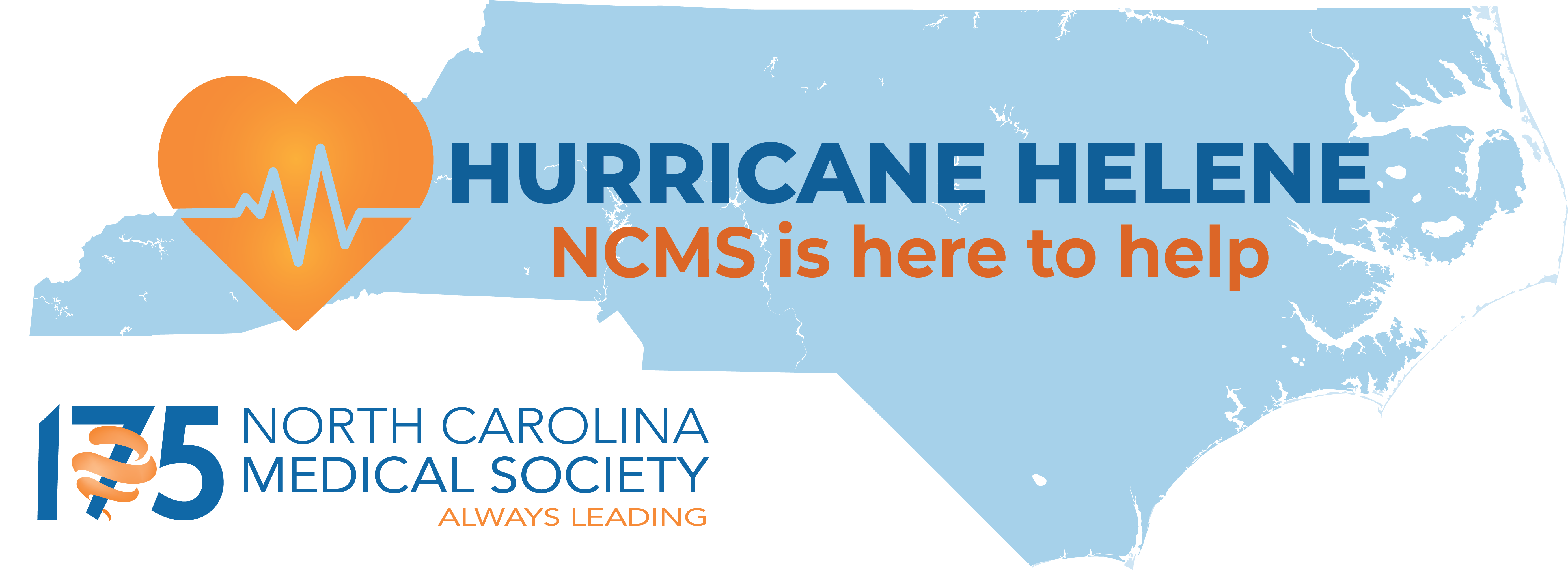
The North Carolina Medical Society is working closely with the North Carolina Office of Emergency Services to assess the condition of medical practices in Western North Carolina. The data we receive from our members and others in the healthcare community will help direct vital resources where they are needed most.
NCMS will update you daily on our initial findings. Here is the report for 10/25/24:
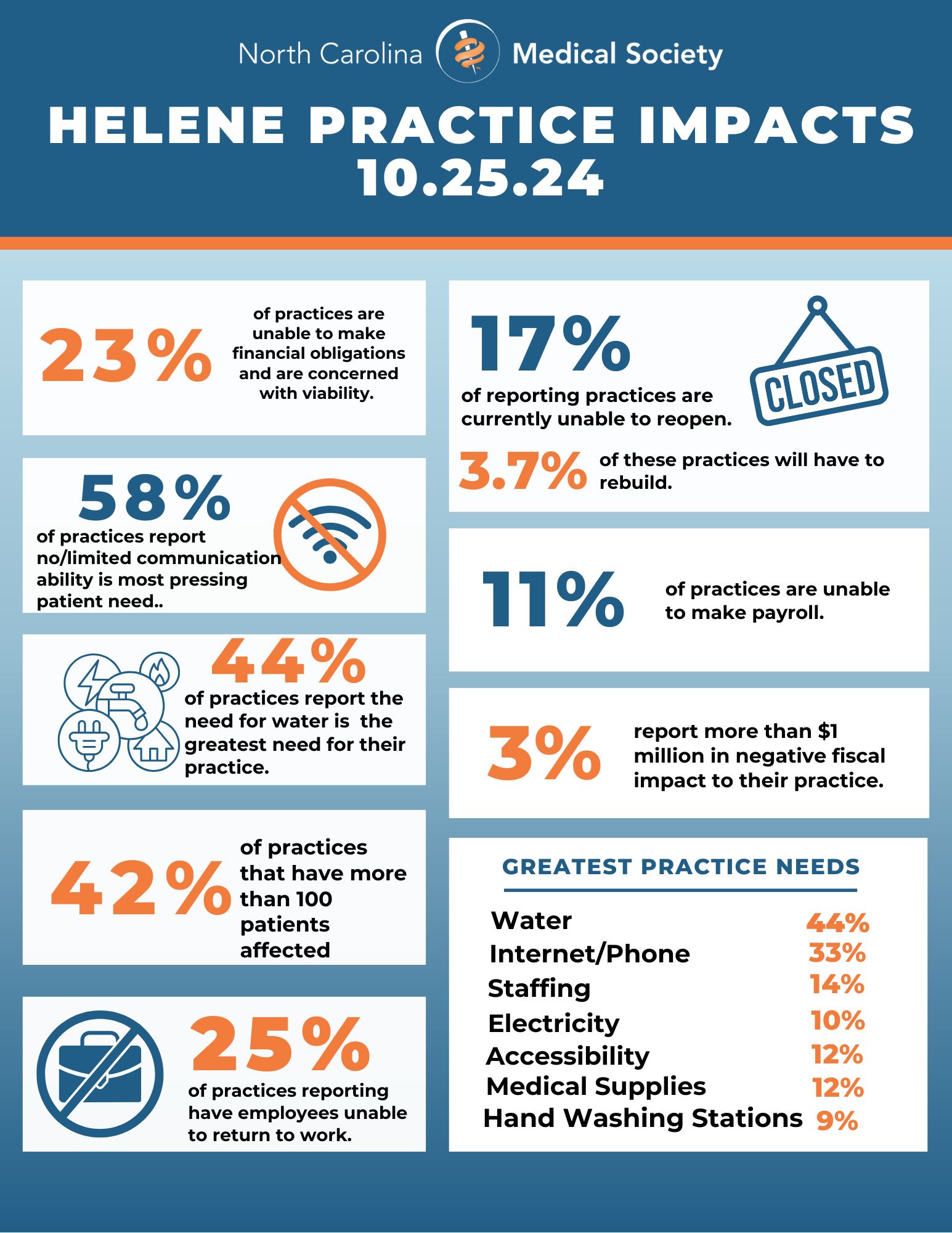
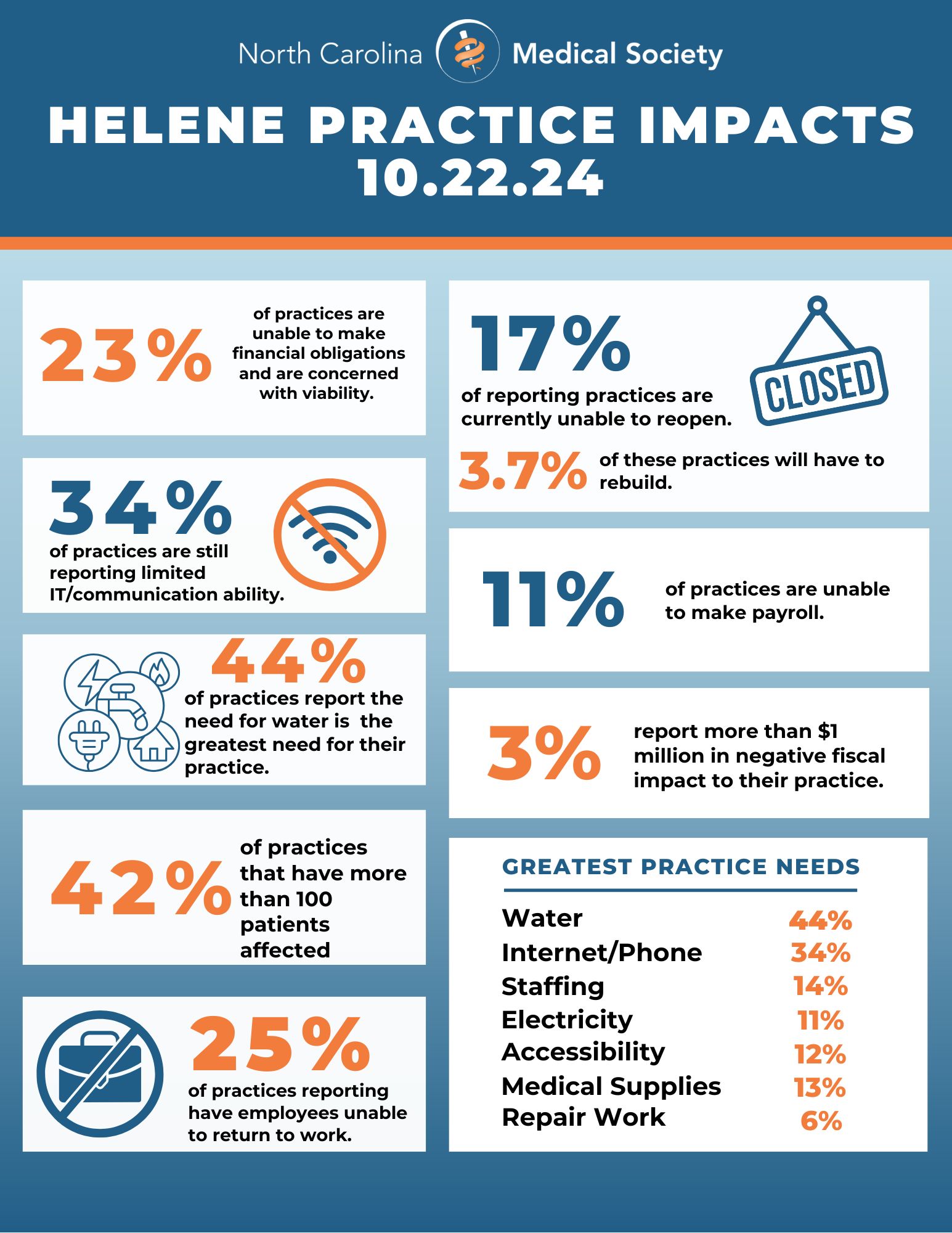
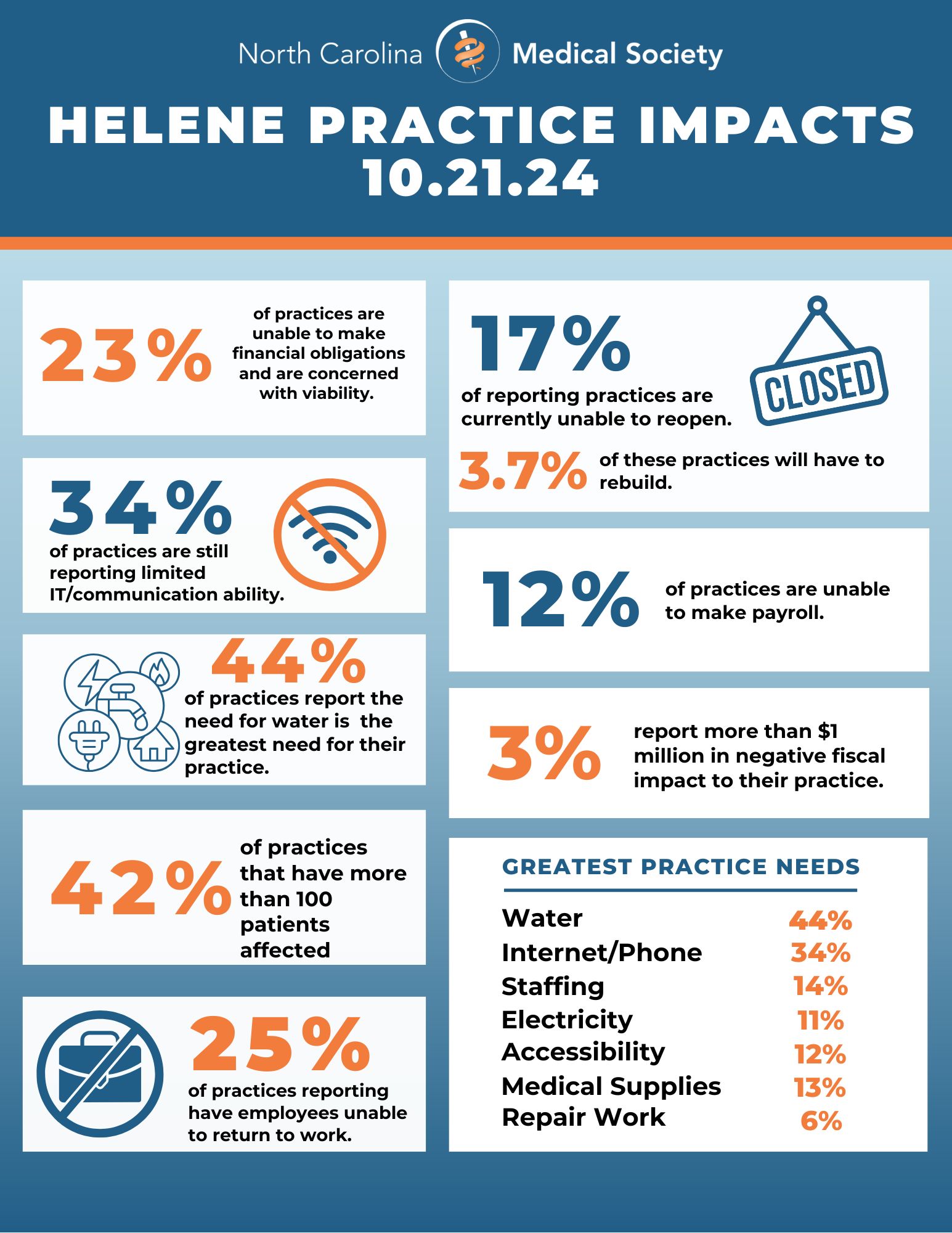

NCMS in Action! Board Member Dr. Karen Smith Addresses State Health Plan Trustees on Prior Auth
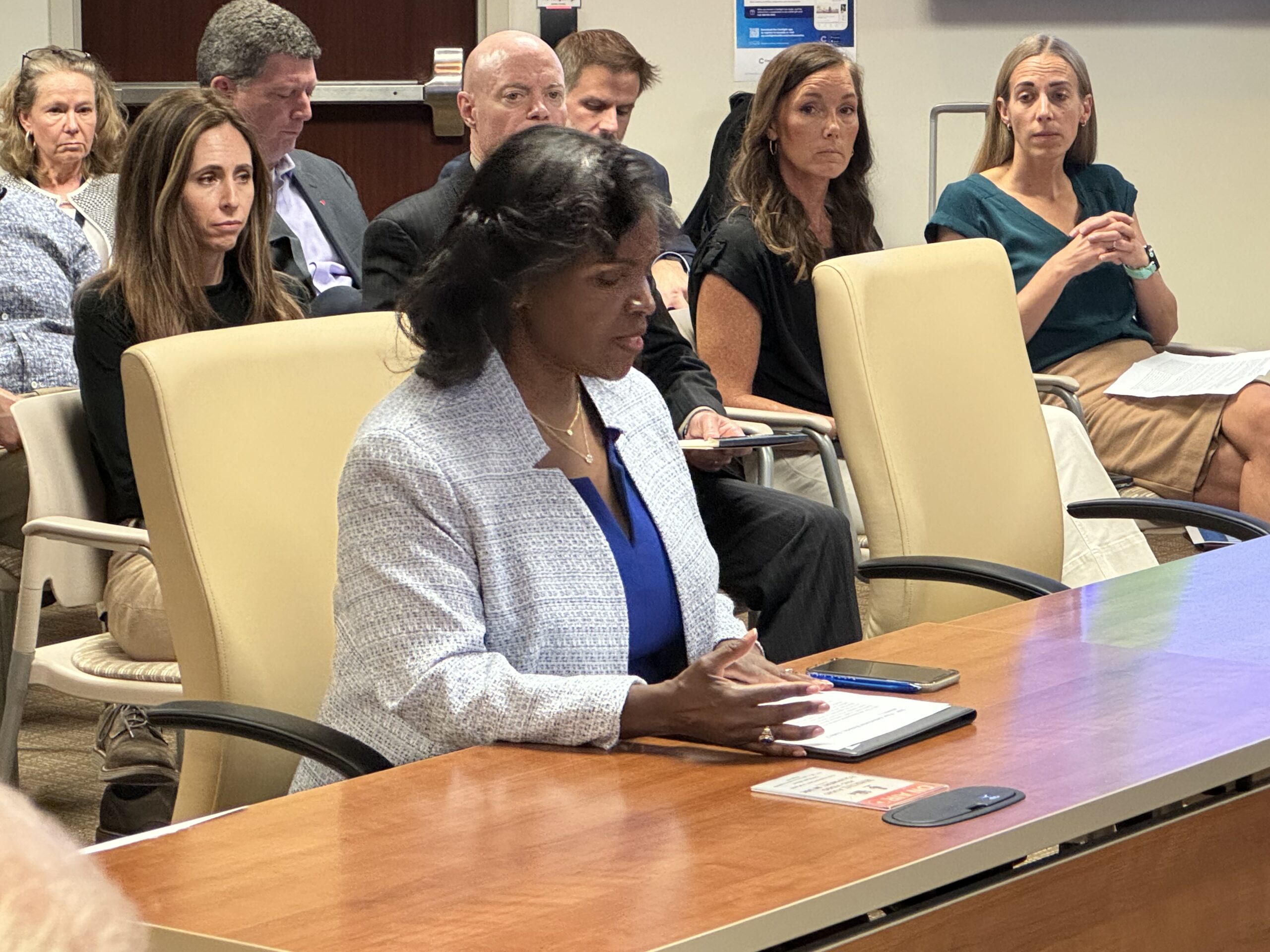
"Reforming prior authorization practices of insurers is a top priority for the North Carolina Medical Society." - Dr. Karen Smith
RALEIGH -- The State Health Plan Board of Trustees met Thursday in Raleigh. At the meeting, North Carolina Medical Society Board of Directors member Dr. Karen Smith presented on behalf of NCMS on prior authorization reform.
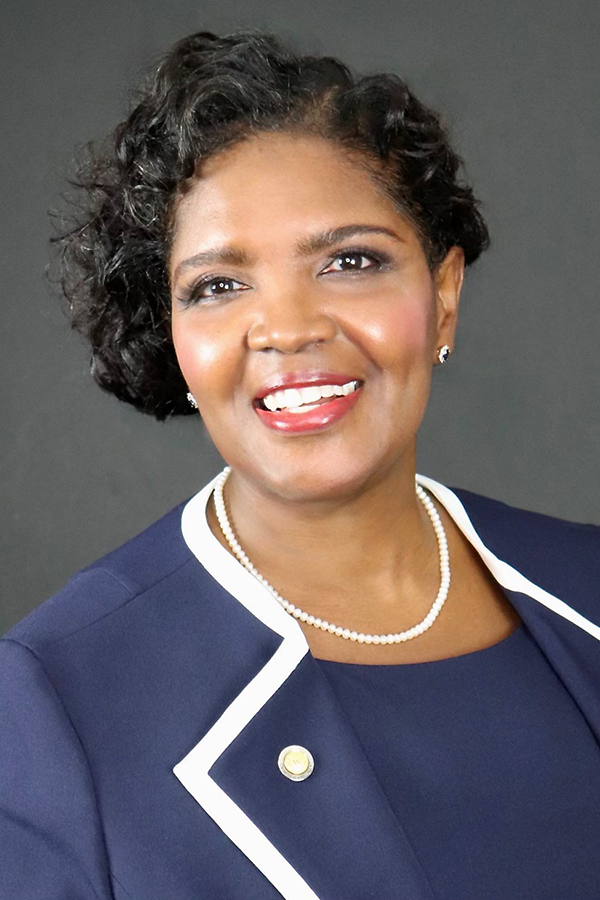 "Two decades ago, we fought against these abusive practices, and unfortunately," Smith said, "they have resurfaced in a new form."
"Two decades ago, we fought against these abusive practices, and unfortunately," Smith said, "they have resurfaced in a new form."
Smith thanked the Board for requesting an analysis of prior authorization, which she says can deprive both employers and employees of coverage they have already paid for.
She encouraged the Board to act on behalf of the nearly 9,000 members of the NCMS to take swift, decisive steps to adopt comprehensive reforms, akin to those outlined in House Bill 649: Ensure Timely/Clinically Sound Utilization Review. This bill passed the North Carolina House of Representatives with unanimous support and is based on proven, effective models used by the American Medical Association and states that have successfully tackled these issues.
Here are the common-sense reforms recommended to the Board:
- Requiring insurers to make utilization review requirements and restrictions transparent, easily understood, accessible to the public, and updated annually based upon clinical standards.
- Mandating that insurers communicate with the treating physician and patients prior to denying any recommended care.
- Requiring that the physician reviewing denied care be licensed in North Carolina, have the same or similar credentials as the treating physician, and have experience treating patients similar to the one filing the appeal.
- Ensuring timely decisions based on the urgency of the required care.
- Addressing continuity of care and retrospective denials, concerns highlighted in your presentation, which we commend Segal for recommending.
Smith added that "physicians across the state have shared alarming stories about how prior authorization has negatively impacted their patients’ health. The current process used by insurers often causes unnecessary delays in treatment, leading some patients to abandon life-saving care."
Smith also pointed to statistics from the American Medical Association that say physicians and their clinical teams spend an average of 13 hours per week -- nearly two business days -- on prior authorizations, time that could be spent on actual patient care.
Also speaking on behalf of prior authorization reform was Greg Griggs, EVP of the NC Academy of Family Physicians. He added to the voice of physicians and PAs saying "the time for reform is now."
See a portion of her comments at the meeting below.
https://www.youtube.com/watch?v=7-dw6a1hVs4
The 2024 NCMS Golden Stethoscope Award Winners Are...
Meet the Winners at the NCMS Golden Stethoscope Awards Dinner November 2
Region 1 - Charin L. Hanlon, MD, FACP,

Dr. Charin Hanlon was nominated by Ryan Barclay, the Director of Graduate Medical Education Novant/New Hanover Regional Medical Center in Wilmington.
Here is Dr. Hanlon's nomination essay:
Dr. Charin Hanlon has dedicated her life to the pursuit of excellence in medicine. She is dual certified in Psychiatry and Internal Medicine and is a driver of innovation in medical education at our institution and within the community. She thrives on interprofessional collaboration to better support our patient population. Dr. Hanlon has held many roles including being the former president of the New Hanover County Medical Society, Director of Internal Medicine Residency Program and has most recently been promoted to the Designated Institutional Official for Graduate Medical Education in the coastal region. She has organized and led many initiatives including physician wellness committees, exploration of a new cardiac fellowship, and brought one of the only sickle cell clinics in the area to her practice. She is always striving to raise the bar for our medical education team. Her leadership has led to better access to medical care for patients and improved training opportunities for the next generation of practicing physicians.
Dr. Hanlon is the Designated Institutional Official for Graduate Medical Education at Novant/NHRMC
Region 2 - Christine Khandelwal, DO
 Dr. Christine Khandelwal was nominated by Nanette Lavoie-Vaughan, DNP, APN, CGCP
Dr. Christine Khandelwal was nominated by Nanette Lavoie-Vaughan, DNP, APN, CGCP
Here is Dr. Khandelwal's nomination essay:
It is with great honor I would like to nominate my colleague, Dr. Christine Khandelwal, to be recognized for the North Carolina Medical Society Golden Stethoscope Award. Whether it is in her teaching, clinical work, or leadership skills, Dr. Khandelwal is an inspirational leader who develops innovative ways to care for patients in our communities while also training the future workforce in geriatrics and palliative medicine.
I have known and worked with Dr. Khandelwal for the past two years in our community-based geriatric and palliative care practice, Transitions LifeCare, before she took a faculty position at Campbell University College of Osteopathic Medicine (CUSOM) the past year. As I retire, it would be remiss of me not to have Dr. Khandelwal recognized by her peers as the inspirational physician leader she is within our community.
Dr. Khandelwal’s ability to navigate complex healthcare systems and advocate for systemic changes has been a testament to her exceptional leadership skills and unwavering commitment to excellence. Dr. Khandelwal has been a pivotal figure within the Wake Med Hospital Systems and surrounding communities, where her contributions have significantly advanced her mission to provide exemplary care for older adults and those with serious illnesses. Dr. Khandelwal was able to develop a palliative care program in the Wake Med Hospitals for the past ten years. The success of this team is attributed to Dr. Khandelwal’s inspiring leadership to elevate her team’s abilities and vision of success in caring for patients they serve. Due to this successful practice model, Dr. Khandelwal is currently developing a new palliative care service in the rural, undeserved region of Harnett County.
Dr. Khandelwal has also been a driving force in the community, spearheading numerous initiatives aimed at improving the health and well-being of our aging population. Her leadership in community health through the development of novel care models has bridged gaps in care and enhanced the quality of life for countless individuals. For example, Dr. Khandelwal developed a new model of care with a regional nephrology practice to improve care for patients with advanced kidney disease. This community-based, nephrology and palliative care partnership is the first of its kind in our state.
Additionally, Dr. Khandelwal developed an outpatient Comprehensive Geriatric Clinic with Wake Med. She has consistently demonstrated extraordinary leadership by creating collaborations with interprofessional teams, including a partnership with community-based neurology service to ensure timely patient care. As a testament to the quality care Dr. Khandelwal provides for her patients and their families, a grateful family recently contributed to the Wake Med Foundation's Geriatrics Program to support other patients and families. This generous contribution highlights the profound impact of Dr. Khandelwal's dedication and the trust she inspires in those she serves.
As a Professor of Family Medicine at CUSOM, Dr. Khandelwal provides her expertise in training students in managing patients with serious illnesses and at the end of life. Dr. Khandelwal has developed an Interprofessional, End-of-Life Care Simulation experience, emphasizing a trauma-informed pedagogical approach. Recognizing the potential risk of secondary traumatization and retraumatization with death and dying, Dr. Khandelwal has prioritized student safety in all her educational programs. The success of this program has led to invitations for Dr. Khandelwal to present her trauma-informed curricula at regional, state, and national conferences.
Dr. Khandelwal is an exemplary physician whose contributions to geriatric and palliative medicine have been both profound and far-reaching. Her unwavering dedication to all our patients, learners, and community makes Dr. Khandelwal a truly deserving candidate for the NCMS Golden Stethoscope Award. Thank you for considering my nomination of Dr. Christine Khandelwal for this prestigious award.
Dr. Khandelwal is currently building the geriatric and palliative care program at Campbell University.
Region 3 - Dr. Jennifer Stoddard, MD
 Dr. Jennifer Stoddard was nominated by Dr. Karen Smith, MD
Dr. Jennifer Stoddard was nominated by Dr. Karen Smith, MD
Here is Dr. Stoddard's nomination essay:
Dr. Jennifer Stoddard is a champion for physician initiatives. I have the honor of working with her for many years on projects which not only improve quality and access of care for our communities but also insure Physician workforce stability. She is very much aware of the business of medicine and the impact on independent practice but also realizes the importance of working in collaboration with systems mutual benefit of Physicians, Physician assistants, practices but most of all patients we care for in our office settings.
She is admired for recognizing the work of the North Carolina Medical Society and the role Moore County plays in the strength of the Sandhills region of our state. Her organizational efforts insure the voice of the region is at the table as healthcare decisions are made which impact the Physician and practice of medicine.
Her awareness of the need to emphasize Physician Well-being as so many new models and initiatives are introduced further requiring more tasks to be completed in the exam room and raising the risk for burn-out and how to optimize wellness strategies is timely.
Her compassionate professionalism is appreciated across all specialties as her focus is on you the physician or the provider beyond that of your specialty organization.
I enjoy the downtime with Jennifer because it usually means good time, great conversation, realistic, and leaving the venue empowered to return to the daily practice of medicine.
It is a honor to recognize her efforts as an example of a doctor who truly represents the profession of medicine.
Dr. Stoddard is a nephrologist in Pinehurst.
Region 4 - Dr. Mohan Thakuri, MD
 Dr. Mohan Thakuri was nominated by Dr. Martin Palmeri, MD, DO
Dr. Mohan Thakuri was nominated by Dr. Martin Palmeri, MD, DO
Here is Dr. Thakuri's nomination essay:
Dr. Mohan Thakuri has been the foundation of malignant hematology care in Western North Carolina. Over the last 15 years, he has helped to grow and develop a complex malignant hematology program at Mission Hospital. Dr. Thakuri was a lead physician at Cancer Care of Western North Carolina. At the peak of the program, Mission hospital was performing over 40 induction therapies for acute leukemia patients as well as a robust population of patients getting high dose Methotrexate for CNS lymphoma. In 2019 when HCA took over Mission Hospital, there were serious concerns about the future of complex malignant hematology care in Western North Carolina. Dr. Thakuri was a vocal champion for oncology patients as well as the inpatient oncology nurses. During this transition, Cancer Care of Western North Carolina disbanded. Dr. Thakuri was a key leader in forming Messino Cancer Centers which allowed for sustained and uninterrupted oncology care in Western North Carolina.
During this HCA transition, many highly qualified oncology nurses quit and they were replaced with enthusiastic but inexperienced nursing graduates. Dr. Thakuri never refused an opportunity to provided teaching and education to these new nurses to help get them up to speed. As time passed and ongoing failures on the part of HCA led to further deterioration of inpatient oncology services (despite significant investment on the part of the doctors of Messino Cancer Centers to bolster Mission's program), Dr. Thakuri had the wherewithal to recognize the fact that we should not be providing complex hematology care at Mission hospital. For any doctor who is passionate about their craft, this is an exceeding hard decision. He has subsequently helped to coordinate having these patients transferred to our regional academic centers and continues to support these patients when their care can be resumed locally.
Dr. Thakuri has also been a dedicated rural oncologist. He has been a staple in Franklin for over 10 years. His leadership and care has helped to grow regional rural oncology care.
Over the years, I have seen many of Dr. Thakuri's patients both in the community setting as well as when I cover for him in the hospital. His patients have a deep appreciation for his care. Dr. Thakuri has announced his retirement at the end of the year and there has been a wave of patients sharing their gratitude and thanks for the care he has provided. He will be deeply missed by his patients.
If I had to summarize Dr. Thakuri, he is tender and thoughtful when it comes to his patients. He is a tough and tenacious advocate for oncology care in Western North Carolina. He does not accept or ever settle for mediocrity.
Dr. Thakuri is recently retired and is currently spending a month hiking Kathmandu.
Gov. Roy Cooper Proposes $3.9 Billion to Spur Hurricane Helene Relief and Recovery
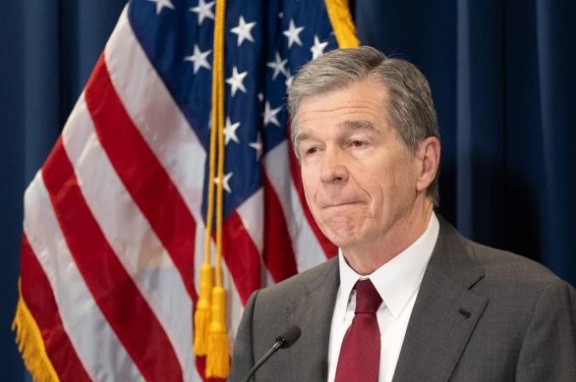
Initial Damage Assessments from Hurricane Helene Total $53 Billion, More Than Three Times Greater Than Hurricane Florence
RALEIGH -- Less than a month after Hurricane Helene hit Western North Carolina, Governor Roy Cooper today shared a state budget recommendation to help rebuild stronger to withstand future storms. Governor Cooper recommends an initial $3.9 billion package to begin rebuilding critical infrastructure, homes, businesses, schools, and farms damaged during the storm.
“Helene is the deadliest and most damaging storm ever to hit North Carolina,“ said Governor Cooper. “This storm left a trail of destruction in our beautiful mountains that we will not soon forget, but I know the people of Western North Carolina are determined to build back better than ever. These initial funds are a good start, but the staggering amount of damage shows we are very much on the front end of this recovery effort.”
Initial damage estimates are $53 billion, roughly three times Hurricane Florence estimates in 2018 and the largest in state history. A strong recovery will require significant investments by private insurers as well as the federal, state and local governments. Large scale disasters fueled by climate change in recent years have shown the challenges and enormous costs of recovery as well as the need to ensure structures are hardened are they are rebuilt to withstand future storms. Successful recoveries require significant early investments to ensure communities have the tools to fully rebuild.
Economy
The economic devastation from Hurricane Helene is unparalleled. Thousands of businesses in the region suffered damages leaving business owners and workers suffering. The Governor’s funding package includes $650 million to address economic losses and physical damage for non-agricultural businesses and non-profit organizations. This would include a revival of the pandemic-era Business Recovery Grant Program, which helped North Carolina’s economy recover faster than the national average. Governor Cooper has already increased unemployment insurance benefits through an executive order with a bipartisan and unanimous vote of the Council of State.
Housing
The Governor’s budget recommendation includes $650 million to address physical damage to residential structures and cost of housing assistance. These investments would jumpstart permanent housing construction in advance of potential federal funds, which can take months or years to be approved.
Utilities and Natural Resources
Critical and high-risk infrastructure was damaged across the region, including water and sewer systems in multiple communities and power generation facilities. Much of this infrastructure is in geographically isolated locations and challenging to reach, slowing restoration of services to communities. The Governor’s funding package includes $578 million to address the physical damage and cleanup of energy, water, waste clean-up, telecommunications, dams and other infrastructure.
Transportation
Hurricane Helene severely impacted approximately 5,000 miles of state-maintained roads across the affected area in Western North Carolina, including several major national interstates and critical transportation corridors. The proposed funding package includes $55 million to address physical damage and state revenue implications of the transportation infrastructure damage.
Agriculture
The funding package includes $422 million to address physical damage and business disruption for agricultural enterprises. This storm caused significant damage to hundreds of thousands of acres of agricultural land and hundreds of structures.
Recovering From Additional Recent Disasters
As North Carolina is still recovering from other recent natural disasters, Governor Cooper’s proposed budget includes $420 million for needs related to PTC-8, Tropical Storm Debby, and funds to complete homeowner assistance for Hurricanes Florence and Matthew.
The full Budget Recommendation can be found here.
Feeling Anxious About the Election? Here's How to Cope

Election Day is almost here. If you're feeling stressed, here is some help.
(KatieCouricMedia, Tess Bonn) -- Election Day is just around the corner — and the race to the finish line has been anything but predictable. Unfortunately for our blood pressure, it’s looking like it’ll be a nail-biter till the bitter end. Polls show that former President Trump and Vice President Kamala Harris are locked in a dead heat. And while Republicans and Democrats are as divided as ever, many of us all share a common emotional reality: election anxiety.
Some people are so worried about the impending outcome that they’ve put their lives on hold — even delaying weddings and avoiding buying a house. Others are losing sleep: Nearly half (46 percent) of respondents to a new American Academy of Sleep Medicine survey reported not getting enough rest due to anxiety surrounding the 2024 election.
“When you feel like something is out of your control, that can make you feel more stressed, anxious, and worried,” says therapist Colleen Marshall, a chief clinical officer at the mental health organization Two Chairs. “This is especially true when it comes to elections.”
It’s important not to conflate feeling anxious (a natural and normal emotion) with a mental health issue. “Anxiety can be defined as a reaction to stress that’s more temporary, whereas an anxiety disorder results in anxiety that persists or recurs, interfering with day-to-day life,” explains psychologist Scott Lyons. “It’s important to recognize that feeling anxious about elections is a common experience, but if you find that it is drastically affecting your daily life, it might be worth seeking professional help.”
If you’re experiencing periodic bouts of apprehension about possible election outcomes, here are some practical tips for managing those emotions as we head into November.
Set limits around news consumption
While staying informed about what’s happening in the world is healthy, reading too much about the election can harm your overall well-being. In fact, research has shown that more political news consumption — especially via polarizing platforms like Twitter and TikTok — is correlated with higher levels of anxiety. So if you’re prone to panic, setting limits for yourself is essential.
“Anxiety often happens when we feel out of control, so setting boundaries around media consumption is one way to regain control and avoid becoming overwhelmed,” Lyons tells us.
So what does this look like in practice? For some, this may mean watching the news for only an hour each day, while others prefer setting aside 30 minutes in the mornings or evenings to scroll the headlines to stay on top of the issues they care about most. There’s no right or wrong way to go about it — the limits will depend on your day-to-day habits. “Set a boundary that feels right to you,” Marshall says.
But Marshall acknowledges that setting boundaries can be tricky at times, especially if someone doesn’t have the same ones as you, so communication is vital. “In my house, if someone is watching the news all the time, I might go outside for a walk instead,” she says. “Or I might talk to that family member about only keeping the news on during certain hours of the day.”
Focus on sparking positive interactions
During this stressful time, navigating relationships with those who might not share your views can be even more challenging than usual.
Lyons recommends focusing on “constructive conversations and activities that foster understanding rather than deepening divisions.” In other words, you don’t have to get to the bottom of every disagreement — consider staying on the surface or finding common ground where possible.
Avoiding political talk altogether, even with family and friends, might be a good idea. But Marshall advises communicating that expectation to your loved ones, especially before spending time together.
“We have lots of beliefs around setting boundaries that are just not helpful, when really, what we all need in our lives is just to be clear about what we need to be and to feel safe in relationships,” she says.
Don’t forget about self-care
The constant barrage of news and heated discussions can make us forget our basic needs. Simple things like sleep, exercise, and a healthy diet can help a lot more than you’d think.
“If you sleep, eat, and exercise well, you physically feel better — and mental health is similar,” explains Marshall.
Even small acts of self-care can have a major impact. The National Institute of Mental Health says incorporating a daily 30-minute walk can boost your mood and overall health. But don’t be discouraged if you can’t get it all at once — because even limited amounts of self-care add up.
There are plenty of other relaxing activities you can do. If a long bath or a good book helps calm your nerves, lean into that. Just try to stick to low-stress hobbies — maybe table that scarf you’ve been struggling to knit for a post-election project.
An opportunity for personal growth?
Election anxiety can also be an opportunity to grow and become more resilient. Our experts agree that the healthier habits we build now can sustain us no matter the outcome in November.
“If we approach it mindfully, election anxiety can indeed be an opportunity for personal growth. It can help us develop better stress management techniques, improve our ability to think critically, and engage in constructive dialogue when faced with different viewpoints,” says Lyons. “In a larger sense, whenever we can calm ourselves in the face of anxiety, we experience growth and teach our nervous systems that we are safe. The more we flex this muscle, the more we build our resilience in the face of uncertainty.”
Buncombe County Revises Death Total From Hurricane Helene
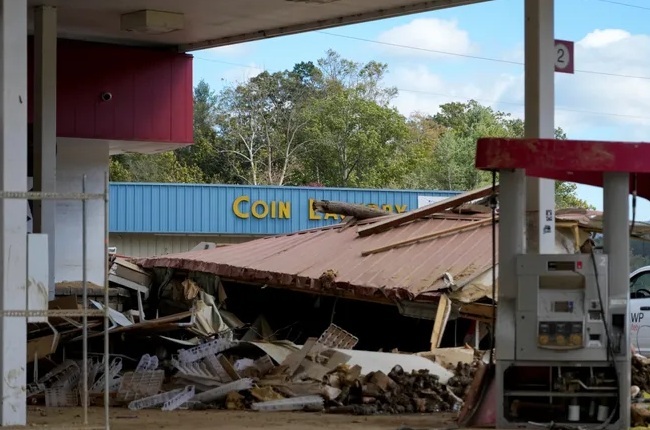
Sheriff's office data reduces death toll
(Associated Press) -- The North Carolina county that is home to Asheville overcounted deaths caused by Hurricane Helene by as many as 30, according to a statement Tuesday from its sheriff's office and data from the state, significantly reducing the death toll from the historic storm. Buncombe County officials, who previously reported 72 deaths, are now deferring to a state tally of 42 deaths for the county. Meanwhile, some areas in Florida have seen a recent increase in confirmed cases of flesh-eating bacteria following the devastating hurricanes Helene and Milton, according to state health department data. Health officials issued a statement urging residents to remain vigilant and avoid floodwaters where the Vibrio vulnificus bacteria can multiply rapidly.
On Tuesday, the Buncombe County Sheriff’s office acknowledged in a statement that the number of deaths in the county was lower than the number it provided. The statement, attributed to Public Information Officer Christina Esmay, cited factors ranging from updated causes of death to communication challenges after the storm knocked out cell service and electricity in multiple mountain counties.
“In the early aftermath of Hurricane Helene all deaths were being classified as storm related and from Buncombe County. However, as the days progressed BCSO was able to identify who had passed away due to the hurricane, who was in fact from Buncombe County, and who passed away from other causes,” the statement said. “Compounded with the lack of consistent communication, due to widespread outages, the Buncombe County fatality number that was initially provided to Sheriff Miller has decreased.”
The sheriff’s office did not provide additional information on how they arrived at their tally, and spokesman Matt Marshall said any other questions about how deaths have been investigated and counted should be sent to state officials. In response to a request to interview the sheriff, Marshall said he would look into his availability.
Another county, Henderson, had previously reported two more local deaths than the state, but said on Tuesday that it agrees with the state’s number.
The Office of the Chief Medical Examiner in Raleigh typically reviews weather deaths and makes a ruling on cause before reporting numbers through state officials, a process it has used in past storms for years. But in the chaos following Helene, a number of counties reported fatality numbers independently of the state. The state’s tally has gradually increased through Tuesday, but the climb has slowed as bodies have been examined.
State Department of Health and Human Services spokesperson Kelly Haight Connor said in an email Tuesday that all examinations are complete for storm-related deaths, but she wouldn’t rule out additions if other cases emerge. The state reported 96 deaths from Helene statewide on Tuesday.
The AP had tallied at least 246 total deaths across multiple states due to Helene through Monday, including 128 in North Carolina, based on data from the state and counties, including Henderson and Buncombe. With the disclosure from Buncombe County that its number was inflated, the AP has adopted the state’s total of 96, so the news organization’s multistate tally now stands at 214.
Imported IV Fluid Hits US as Shortage Continues

The first IV fluids imported from Baxter facilities in other countries reached the U.S. on Saturday
(Axios, Maya Goldman) -- IV fluids from as far away as China are being imported to the U.S. to alleviate nationwide shortages stemming from hurricane damage to a key manufacturing plant in North Carolina.
Why it matters: Hospitals now have 50% more IV fluid available to them than immediately after Hurricane Helene swamped Baxter International's North Cove manufacturing site in Marion, North Carolina, per the Health and Human Services Department. But health providers expect shortages to last weeks longer.
State of play: The first IV fluids imported from Baxter facilities in other countries reached the U.S. on Saturday, HHS said.
- The Food and Drug Administration has authorized temporary importation from Baxter plants in Canada, China, Ireland and the U.K., the company said. Baxter is working with the FDA to authorize imports from its other international sites.
- Baxter, in partnership with HHS's Administration for Strategic Preparedness and Response, expects to deliver nearly 18,000 tons of products from Europe and Asia by the end of the year.
- The FDA has also added more IV solutions to the drug shortage list, which allows for the distribution of compounded substances
Meanwhile, pre-hurricane staffing levels will resume at Baxter's North Carolina plant this week, the company said on Monday.
- The more than 2,500 employees will work alongside more than 1,000 contractors who are helping bring the facility back up to speed. But the company does not yet have a timeline for when pre-hurricane production levels will be restored.
- Progress on restoring the physical facilities "has exceeded our expectations in many respects," the company wrote in its Monday memo.
Yes, but: Hospitals are preparing to weather IV fluid shortages for a while longer.
- The Indiana Hospital Association said it could take weeks for hospitals to get their allocated IV fluids, despite importations and Baxter's North Carolina facility ramp-up.
- Oregon Health & Science University interim CEO Joe Ness told his board of directors last week that the the acute shortage could last as long as six more weeks, Oregon Public Broadcasting reported.
- "We're managing through it, but it is very tough. It does remind us of COVID days," Ness told the board.
Early Voting in NC Starts Today

Early voting starts Thursday, General Election is Tuesday, November 5
During the early voting period, voters may cast a ballot at any early voting site in their county. This is different than Election Day, when registered voters must vote at their assigned polling place. During the early voting period, eligible individuals may also register to vote and vote at the same time (see Same-Day Registration below).
For an overview of North Carolina’s current elections, visit Upcoming Election.
Early Voting Dates and Sites
- The in-person early voting period for the 2024 general election:
- Begins Thursday, Oct. 17, 2024.
- Ends 3 p.m. Saturday, Nov. 2, 2024.
- The general election is on Tuesday, Nov. 5, 2024.
- Find early voting sites and schedules in your county: Early Voting Site Search.
- Locations and voting hours are also available here: Early Voting Sites for the Nov. 5, 2024 General Election (PDF).
Unsure if You Are Registered?
Find out if you are registered to vote by entering your information into the Voter Search.
Don’t Forget Your Photo ID
North Carolina voters will be asked to show photo ID when they check in to vote. Learn more: Voter ID.
Same-Day Registration
When you check in to vote at an early voting site, you may update your name or address within the same county if necessary. Individuals who are not registered to vote in a county may register and immediately vote at that same site. This process is called “same-day registration.” Find more information at Register in Person During Early Voting. Although same-day registration is available for voters during early voting, same-day registration is not available for most voters on Election Day.
Your Sample Ballot
To view sample ballots, registered voters must enter their information into the Voter Search and navigate to “Your Sample Ballot.” Voters can practice making selections with the accessible sample ballot: “Option 4” at the NC Absentee Ballot Portal.
Note: Sample ballots for each election are only available once finalized.
By-Mail Absentee Ballot Drop-Off
Voters who receive an absentee ballot by mail may deliver their ballot to their county board of elections office or to an election official at an early voting site during any time that site is open for voting. Ballots will be kept securely and delivered to the county board of elections for processing.
Voting Equipment
Curious which equipment will be at your voting site? Check the interactive map and table: Early Voting Equipment by County.
Voter Assistance and Curbside Voting
Any voter who qualifies for assistance may ask for help at their polling place under Assistance to voters (N.C.G.S. § 163-166.8). To find more information, visit Help for Voters with Disabilities. Curbside voting is available for eligible individuals. For more information, see Curbside Voting.
After You Vote
You can find out whether your vote counted in the “Your Absentee Ballot” section of the Voter Search database. Under North Carolina law, all early votes — by-mail or in-person — are considered absentee votes. Your ballot status also will show up in the “Voter History” section as soon as your county completes the post-election process of assigning voter history to your record. This may take up to a few weeks after Election Day.
Learn more about NCMS member candidates here.
As You Head to the Polls, Learn More About the NCMS Member Candidates
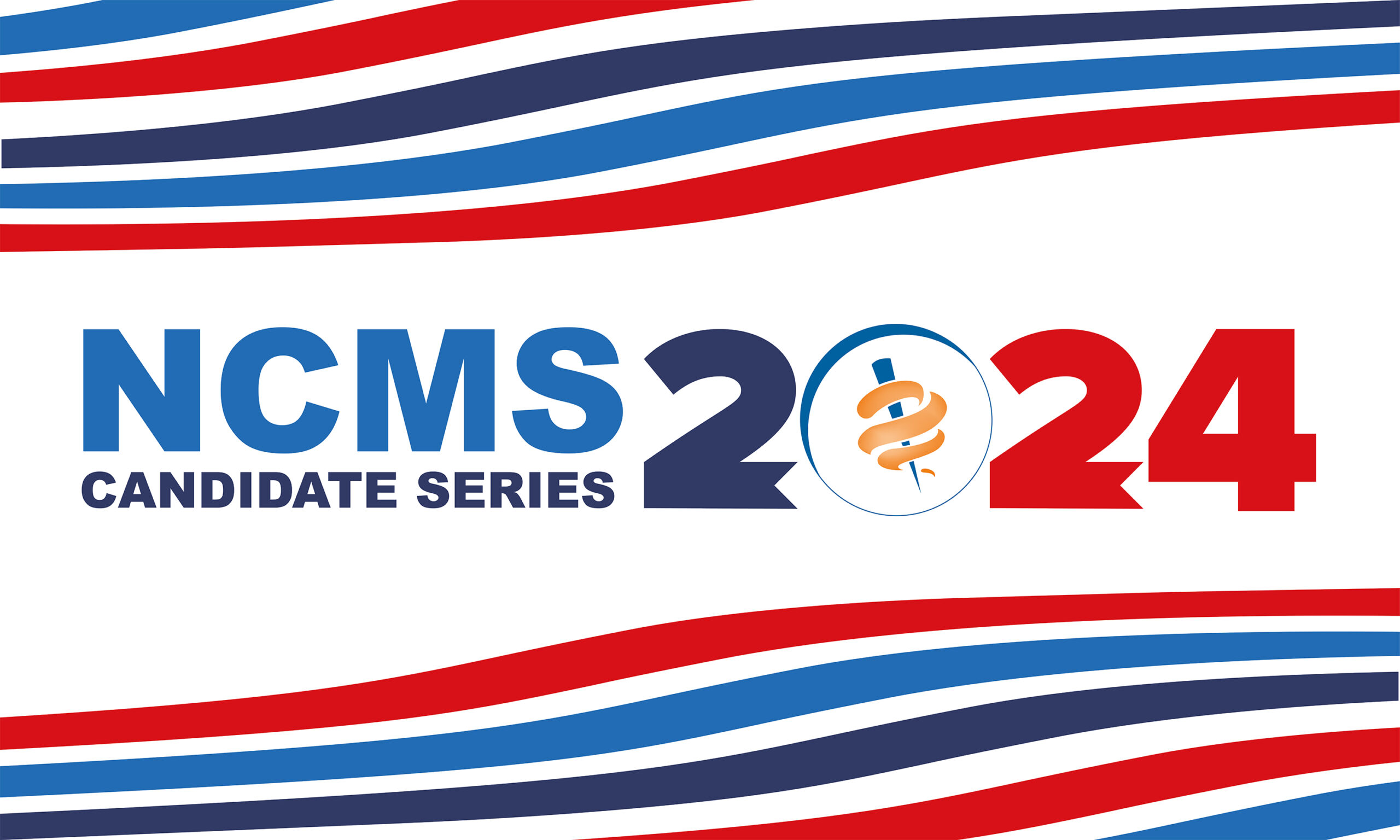
Early Voting Available Until November 2
The North Carolina Medical Society has interviewed several member candidates on issue important to members. Click here to find out what they have to say.
Unsure if You Are Registered?
Find out if you are registered to vote by entering your information into the Voter Search.
Don’t Forget Your Photo ID
North Carolina voters will be asked to show photo ID when they check in to vote. Learn more: Voter ID.
Same-Day Registration
When you check in to vote at an early voting site, you may update your name or address within the same county if necessary. Individuals who are not registered to vote in a county may register and immediately vote at that same site. This process is called “same-day registration.” Find more information at Register in Person During Early Voting. Although same-day registration is available for voters during early voting, same-day registration is not available for most voters on Election Day.
Note: Same-day registration at early voting sites is not available during second primaries. However, individuals who become eligible to vote between the primary and second primary and who are otherwise eligible to vote in the second primary may register and vote on the day of the second primary.
Your Sample Ballot
To view sample ballots, registered voters must enter their information into the Voter Search and navigate to “Your Sample Ballot.” Voters can practice making selections with the accessible sample ballot: “Option 4” at the N.C. Absentee Ballot Portal.
Note: Sample ballots for each election are only available once finalized.
By-Mail Absentee Ballot Drop-Off
Voters who receive an absentee ballot by mail may deliver their ballot to their county board of elections office or to an election official at an early voting site during any time that site is open for voting. Ballots will be kept securely and delivered to the county board of elections for processing.
Voting Equipment
Curious which equipment will be at your voting site? Check the interactive map and table: Early Voting Equipment by County.
Voter Assistance and Curbside Voting
Any voter who qualifies for assistance may ask for help at their polling place under Assistance to voters. N.C.G.S. § 163-166.8. To find more information, visit Help for Voters with Disabilities. Curbside voting is available for eligible individuals. For more information, see Curbside Voting.
After You Vote
You can find out whether your vote counted in the “Your Absentee Ballot” section of the Voter Search database. Under North Carolina law, all early votes — by-mail or in-person — are considered absentee votes. Your ballot status also will show up in the “Voter History” section as soon as your county completes the post-election process of assigning voter history to your record. This may take up to a few weeks after Election Day.
Western Carolina Medical Society Executive Director Talks Aftermath of Hurricane Helene
Karen Wallace-Meigs Describes First Frightful Days Following Hurricane Helene
“Worst thing I have ever seen. I am absolutely fine, but there is a lot of survivor's guilt. “
Karen Wallace-Meigs was only on the job as the Executive Director of the Western North Carolina Medical Society for five months when the remnants of Hurricane Helene tore across the Southeast and destroyed much North Carolina's beloved western counties. The impact was both tragic and heartfelt.

“This was no respecter of persons; it impacted people across all economic levels. The storm just destroyed everything” Wallace-Meigs says. "It took five or six days to just find my full staff."
With the number of people still missing in North Carolina near 100, Wallace-Meigs' days are not getting any easier.
She describes the first few days as harrowing and filled with uncertainty.
“I’ve never had less communications in my life. You really didn’t know what was happening because of a lack of news. No water, power, internet, cell service.” She also shares that traveling was out of the question because road conditions were unknown, and she was unsure of the full extent of the damage.
After a few days, however, WCMS began to regain its footing. The first thing was to get in touch with her staff, some of whom were as far away as Canada. Her newsletter editor is in South Carolina and estimates it will be a year or more before she can return home.
"We are still getting it out!"
Wallace-Meigs says they are definitely back in working mode and the newsletter will return. WCMS also has the largest interpreter network in Western North Carolina and the need for interpreters is greater than ever. "The interpreter network is ready to go" she says and WCMS will be working as hard as possible to put the right interpreters in place for the foreseeable future.
One of the first things Wallace-Meigs worked on was finding places for people to go when they were discharged from hospitals. "People just didn't have a home to go to anymore!" WCMS has been putting retired physicians together with any area churches that have electricity and water to take in people when they leave the hospital. "They have to have a place to recover," she says, "or else they will never get well. What happens next is still to be determined."
"It is about to get cold, and I am not sure what that will mean."
The need for water is well known from reports throughout the region, but Wallace-Meigs says that there will soon be a desperate need for warm clothing, bedding, and shelter. "It will soon be too cold here to stay in a home with no electricity." She says people also forget that losing your home means you lose things like your eyeglasses and your canes. "Durable equipment is going to be something we will need soon as well," she says.
"Don't forget us."
When asked what she wants the people of North Carolina to know, Wallace-Meigs says “Don’t forget us. We’re here, and we’ll be here struggling for a long time. We are resilient, but we need you beside us.”
To help the people of Western North Carolina with a financial donation to the NCMS Disaster Relief Fund click here.
NC Legislative Update 10-11-24
|
|
|
|
|
NCMGMA Salary & Benefits Survey Now Open

| 2024 NCMGMA Salary & Benefits Survey is Open 75% Completion Grants Complimentary Data Access |
| Complete your survey by November 21st |
| This comprehensive study is designed to bring our members the information they need to see trends specific to the healthcare industry, and provide comparative information your organization can use to assist in making crucial business decisions.
REMEMBER! If you participated last year, you can copy last year's data into this year's survey, effectively reducing the time it takes to complete the survey. |
| Data collection is now open through Thursday, November 21st. |
| Access to the Site |
|
| Survey Information |
|
| Questions |
| If you have any questions about the 2024 Salary & Benefits Survey, please contact the NCMGMA offices at [email protected]. |
Gov. Roy Cooper's Latest on Helene as Others Finally Get Access to Hardest Hit Areas of WNC

Gov. Roy Cooper vowed Wednesday that the state government will continue to provide the resources Western North Carolina communities need to recover from Tropical Storm Helene. “This is a true all-hands-on-deck moment,” Cooper said. In a wide-ranging briefing, officials touched on a number of topics related to the Helene response. Notably, Cooper called out the effects of wide-reaching disinformation that has been spreading in Helene’s wake; FEMA Administrator Deanne Criswell vowed to keep significant assets in North Carolina even as the agency responds to Hurricane Milton’s impending landfall in Florida; and Cooper called for direct assistance for small businesses impacted by the storm.
Other State Leaders Flocking to WNC to Assess Damage, Response
Where once were surging floodwaters, now elected representatives from both the federal and state level are pouring into Western North Carolina and Haywood County, touring damaged areas, talking to local officials about needs and thanking first responders for their service to their communities.
North Carolina Gov. Roy Cooper, with FEMA Administrator Deanna Criswell in tow, continued his multi-day western swing on Oct. 4, making stops in Haywood and Jackson Counties. On Oct. 8, Sen. Thom Tillis visited the same complex Cooper had a few days before, saying he was pleased with the overall response by FEMA. Mark Pless, Haywood County’s Republican representative in the General Assembly, said that House Speaker Tim Moore, R-Cleveland, met with leaders in Canton on Oct. 4, delivering supplies and moving onto Clyde, Waynesville and the Crabtree Fire Department before joining the mayors of Hot Springs and Marshall in Madison County, which Pless also represents. Rep. Destin Hall, R-Caldwell, and Rep. Karl Gillespie, R-Macon, accompanied Pless to Marshall and Hot Springs again on Oct. 6.
NC Lawmakers Pass $273M Helene Relief Bill with Voting Changes to More Counties

Describe it as a down payment on aid and a way to help hard-hit counties
RALEIGH, N.C. (AP, Gary Robertson) — North Carolina legislators completed an initial $273 million relief package Wednesday to help spur recovery from Hurricane Helene, describing it as a down payment on aid and a way to help hard-hit counties gain more flexibility in holding elections already underway.
The legislation, which was approved unanimously in the House and Senate, comes less than two weeks after the catastrophic flooding from the storm’s historic rainfall in the North Carolina mountains.
Over half of the 238 confirmed Helene-related deaths in Southeastern states in Helene’s path occurred in North Carolina, a presidential battleground state where absentee voting has already begun.
Tens of thousands of electricity customers in the region remain without power and some people, including residents of Asheville, still lack running water. The voice of legislators from the ravaged region cracked with emotion when talking about the heavy blows dealt by Helene.
“I want to thank you for putting your first seeds into the ground,” said Sen. Ralph Hise, a Republican from Mitchell County, where he said the local water system is “unsalvageable” and otherwise would take years to replace. “We’ve never seen devastation like this before.”
Republican legislative leaders who helped craft the measure with input from Democratic Gov. Roy Cooper’s administration and election officials emphasized repeatedly that more legislation and funds would come soon. Lawmakers have also agreed to return Oct. 24 for more action, rather than wait until mid-November for an already scheduled session. They acknowledged the effort would take months and years to complete.
“The recovery that is going to have to be done is going to be something that is a Herculean task, but it is something that we will get done,” House Speaker Tim Moore said.
Nearly all the money in the bill — $250 million — is earmarked for state agencies to meet the federal government’s match for state and local disaster assistance programs. State government currently has $4.75 billion set aside in a “rainy-day” fund and $733 million in a disaster response reserve. Other pots of money could be tapped if needed.
The governor was expected to sign the legislation. “I appreciate the efforts of the legislature today to pass a bill to aid these communities,” Cooper said at a Helene recovery briefing at the state Emergency Operations Center in Raleigh.
The bill also includes specifics to ensure teachers and cafeteria workers in public schools closed in Helene’s aftermath get paid. Fees for people to replace lost driver’s licenses and identification cards are getting waived, as are some highway repair and open storm debris burn permitting requirements.
The bill also largely follows rule alterations for conducting elections and turning in ballots that were approved unanimously earlier this week by the State Board of Elections. But lawmakers decided to expand the alterations from 13 of the state’s 100 counties approved by the board to 25 counties — in keeping with the scope of the federal disaster declaration, Senate leader Phil Berger said.
The storm’s flooding has severely damaged some voting sites, making replacements necessary. Early in-person voting is held Oct. 17 through Nov. 2.
The legislation allows voters registered in the 25 counties, for example, to request an absentee ballot in person up until the day before Election Day. These voters also would have more ways to drop off those absentee ballots, including any open early voting site or county election office in any of the 100 counties, as well as at the State Board of Elections office in Raleigh. That goes beyond the additional options approved by the state board. Such ballots still must be turned in by 7:30 p.m. on Election Day to be counted.
Republican presidential candidate Donald Trump’s campaign sent out a news release late Tuesday suggesting 10 changes so displaced voters “don’t lose their right to participate in this important election.” Most of the ideas are contained in the legislation, although one appears absent.
Overall, the region affected by the election changes has historically favored Republican candidates, although Asheville and surrounding Buncombe County is considered a Democratic stronghold.
Sen. Paul Newton, a Cabarrus County Republican and Senate elections committee co-chairman, emphasized the changes in the bill were nearly all based on the board’s bipartisan order earlier in the week, and that many entities provided input to staff.
“We just saw the level of devastation and knew we had to make changes for anybody to have a chance of voting in these elections,” Newton said. “That would be true no matter whether it’s red or blue.”
In floor debate, Democratic and Republican mountain legislators described the destruction they’ve witnessed in their districts. They spoke gratefully about acts of heroism and assistance from outside the region, including convoys of supplies.
GOP Rep. Jennifer Balkcom, who with others helped open a Henderson County aid distribution warehouse, said mountain people are strong and resilient.
“But people are still needing help even though they don’t ask for it,” Balkcom said, adding the legislation is “a start to help get people what they need.”
Hurricane Helene Frequently Asked Questions
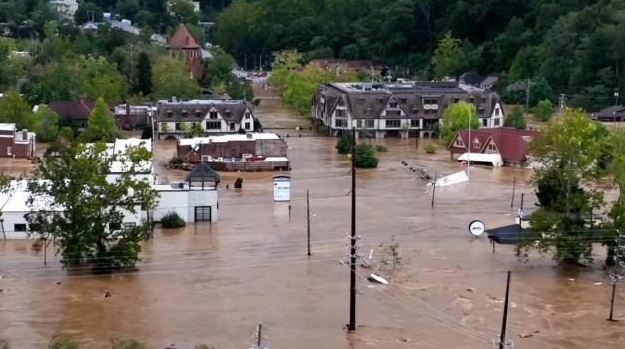
After Helene: Answers to Some of Your Questions
Updated 10/16/24, 3:40 pm
The North Carolina Medical Society is continuing to update information for our members and people across North Carolina with the latest on Hurricane Helene disaster recovery continues. Here is a list of Frequently Asked Questions.
- I need to let state agencies know the status of my practice.
- Click here for the NCMS Impact Survey and the NCMB Practice Status Form. Both MUST BE SUBMITTED AS SOON AS POSSIBLE.
- If you know someone without internet access you can fill out the form for them or have them call the NCMS at 919-833-3836.
- I need financial support. What are my options?
- roviders in need of financial supports should work directly with the health plans to learn what supports each plan is offering and their associated process(es).
Contact Information
- Alliance Health alliancehealthplan.org/provider-updates/hardship-payment-requests-2
Provider support: 855-759-9700 - AmeriHealth Caritas North Carolina amerihealthcaritasnc.com
Provider support: 888-738-0004 - Carolina Complete Health carolinacompletehealth.com
Provider support: 833-552-3876 - Healthy Blue healthybluenc.com/north-carolina/home.html
Provider support: 844-594-5072 - Partners partnersbhm.org/tailoredplan/providers/providerconnect
Provider support: 877-398-4145 - Trillium ncinno.org
Provider support: 855-250-1539 - United Healthcare Community Plans of North Carolina uhccommunityplan.com/nc/medicaid/medicaid-uhc-community-plan
Provider support 800-638-3302 - Vaya Health https://providers.vayahealth.com/helene-recovery/
Provider Support Line: 866-990-9712 - WellCare of North Carolina wellcare.com/nc
Provider support 866-799-5318 - NC Medicaid Direct To request a hardship advance, contact the Medicaid Provider Ombudsman [email protected] or 866-304-7062
Information on the flexibilities in place for Hurricane Helene can be found on the NC Medicaid Bulletins webpage.
Visit the NC Medicaid Hurricane Helene Virtual Bulletin Board for information and resources for NC Medicaid beneficiaries and families impacted by Hurricane Helene.
- Alliance Health alliancehealthplan.org/provider-updates/hardship-payment-requests-2
- roviders in need of financial supports should work directly with the health plans to learn what supports each plan is offering and their associated process(es).
- I have an emergency or need rescue. What can I do?
- Call 911 for any emergencies. While some 911 centers are down in western NC, their calls are being routed to other counties in central and eastern NC.
- I have undocumented patients. Can they stay in shelters?
- If a person needs to stay in a shelter, get emergency supplies or needs other types of disaster relief, legal action will NOT be taken. If someone tries to enforce immigration law, report it: DHS.gov/file-civil-rights-complaint.
- My bilingual staff can't work right now. How can I help my Spanish-speaking patients?
- They can reach out to Línea de Salud NC, a free, Spanish-language Health Hotline, at 1-844-438-6827.
- Mental health resources are also available. Call the Disaster Distress Helpline at 1-800-985-5990. Press 2 to get help in Spanish.
- I have questions about food, shelter, roadways, or need other general non-emergency information. Who can I call?
- You may call 211 for any non-emergency related questions.
- I cannot stay at home and need shelter. Where can I find out what to do?
- Visit ReadyNC.Gov for sheltering information and follow your local government’s social media and website for more information.
- My business or home is damaged. Who can I email?
- Residents with questions about the recovery process or Individual Assistance may email [email protected].
- Who do I contact in my county for the latest information?
- NCDPS list of county resources is available by clicking here.
- My practice is open, but we can't access medical records.
- NCHealthConnex can help find information for displaced patients.
- My patients need medicine. Where are open pharmacies?
- The NC Board of Pharmacy is updating it's list of operating pharmacies in Western NC. Click here for the most up to date list.
- Who do I contact at Division of Emergency Management?
- The NC Division of Emergency Management has divided the state into three branches. Click here of contact names and information.
- I have Blue Cross NC and need clarification on how it is handling Prior Authorization, telehealth, and appeals
- Blue Cross NC is deferring Prior Auth for all acute inpatient admissions and emergency services. Read full statement here.
- Blue Cross NC telehealth audio only reimbursable at 100 percent. Details here.
- Blue Cross NC extends timeframe for post-service provider appeals. Read full statement here.
- I use the State Health Plan, but don't know how to get information.
- The State Health Plan has released a list of resources for those impacted by Helene. Click here for full list.
- When will I know what recovery programs are available?
- This will be announced following the damage assessment process with local governments. Determinations are not a rapid process as the disaster assessments take time to ensure accuracy, which can benefit North Carolinians by activating further resources.
- I need help with clean-up!
- Yes, you can contact Crisis Clean Up at 910-218-1569 and they can potentially assist with connecting you with volunteer organizations in your area that can be a resource.
- What roads are open and closed right now?
- Visit DriveNC.Gov for the most up-to-date information on roadway conditions from the North Carolina Department of Transportation. You can also follow your local government’s social media pages or websites for updated information on roadway conditions.
- The election is days away and I'm afraid I won't be able to vote.
- A bipartisan state board has approved measures to help WNC voters. Your vote is your voice.
- I need to transfer a patient from Western NC hospitals impacted by Helene.
- Enter the patient here: https://nc.readyop.com/fs/4dDL/830f or contact 919-937-7112.
- How do I access shelters that manage individuals requiring non-acute medical care by physicians, nurses, etc..
- I have Medicare. Who do I contact for lost or damaged durable medical equipment, prosthetics, orthotics, and supplies?
- Contact 1-800-MEDICARE (1-800-633-4227) for assistance.
- How do I help my patients obtain and maintain access to critical life-saving services such as dialysis?
- CMS activated the Kidney Community Emergency Response (KCER) program and working with End-Stage Renal Disease (ESRD) Network 6 (Georgia, North Carolina) and Network 7 (Florida), which is responsible under a contract with CMS for assessing the status of dialysis facilities in potentially impacted areas of the impacted states. Visit the Kidney Community Emergency Response (KCER) program website: kcercoalition.com/ Contact: The ESRD Network 6 (Georgia, North Carolina) toll-free hotline is 1-800- 524-7139 and ESRD Network 7 (Florida) toll-free hotline is 1-800-826-3773.
- I'm a NC physician/PA. How do I get information about Limited Emergency License in North Carolina?
- NCMEDBOARD.ORG
- I'm an out-of-state physician/PA and do not currently have a license in North Carolina. How do I obtain a temporary licensure under the emergency policy?
- Visit: www.ncmedboard.org/disaster
- I'm a physician/PA with a full North Carolina license. Am I able to volunteer without obtaining a volunteer license?
- Physicians and physician assistants with a full North Carolina license are able to volunteer without obtaining a volunteer license. Note that PAs who provide volunteer medical services DO need a supervising physician per NC law.
- I have patients who need help buying food. Who should they contact.
- Visit this page here.
- What should I know about Well and Septic Safety following Hurricane Helene?
- Visit the page here.
The NCMS will continue to update this page as more information becomes available.
Critical Update from SBA on Helene Recovery Resources. Webinar 10/10/24
Webinar: SBA Resources for All Businesses Impacted by Helene
A critical update with the U.S. Small Business Administration on Resources for Helene Recovery
Around 25% of businesses fail after a disaster. To ensure North Carolina businesses get the timely answers they need, the NC Chamber is hosting a complimentary webinar on Thursday, Oct. 10: “SBA Resources for All Businesses Impacted by Helene.”
Every business (any size) within the declared areas, private nonprofit organization, or resident affected by Helene can apply online or at the opened Business Recovery Centers (BRCs) managed by SBA or Disaster Recovery Centers (DRCs) managed by FEMA. A full list of counties in the declared areas is at the bottom of this email.
It’s helpful to start this process immediately. You do not have to wait for insurance coverage determinations or claims denials to apply for SBA programs. The application filing deadline for physical damage is Wednesday, Nov. 27 and economic injury is Monday, June 30.
This programming is offered on a complimentary basis to all. Please share it with anyone in your network who might benefit from SBA resources.
Counties Eligible for Relief
The disaster declaration covers Alexander, Alleghany, Ashe, Avery, Buncombe, Burke, Caldwell, Catawba, Clay, Cleveland, Gaston, Haywood, Henderson, Jackson, Lincoln, Macon, Madison, McDowell, Mitchell, Polk, Rutherford, Transylvania, Watauga, Wilkes, and Yancey counties and The Eastern Band of the Cherokee Indians in North Carolina which are eligible for both Physical and Economic Injury Disaster Loans from the SBA.
Small businesses and most private nonprofit organizations in the following adjacent counties are eligible to apply only for SBA Economic Injury Disaster Loans (EIDLs): Cherokee, Graham, Iredell, Mecklenburg, Surry, Swain and Yadkin in North Carolina; Rabun, Towns and Union in Georgia; Cherokee, Greenville, Oconee, Pickens, Spartanburg, and York in South Carolina; Carter, Cocke, Greene, Johnson, Sevier, and Unicoi in Tennessee; and Grayson in Virginia.
Agenda
Thursday, October 10
| 11:00 am | Welcome and Introductions |
| 11:05 am | Presentation: Overview and Update |
| 11:40 am | Q&A |
State Lawmakers Meeting Today to Pass a $273 Million Disaster Relief Bill for WNC
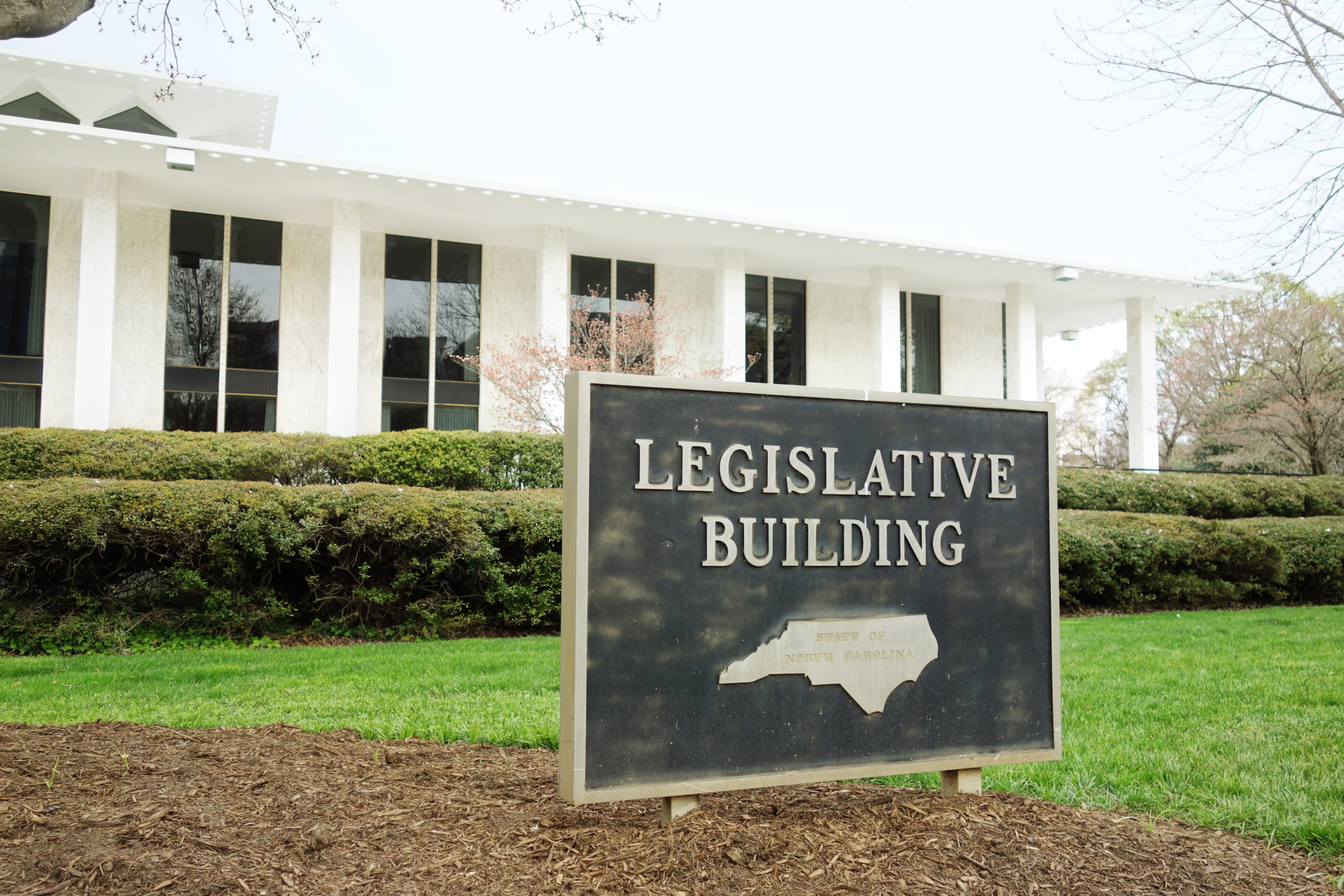
The current balance of the state’s rainy day fund is $4.75 billion
State lawmakers will meet in Raleigh Wednesday to pass a $273 million disaster relief bill to help western North Carolina communities devastated by Hurricane Helene last month.
The bill they’ll take up Wednesday is House Bill 149, an unrelated measure that was already in conference committee. They’ll strip out the contents and replace it with their relief package. Because H149 is a conference report, it will require only one vote in each chamber, and no amendments can be made to it. The state will get funding help from the federal government, but it also has plenty of money set aside to work with. According to the state controller’s office, the current balance of the state’s rainy day fund is $4.75 billion. The state also has $733 million in an emergency response and disaster reserve account, giving lawmakers nearly $5.5 billion in immediately available funding.
The state also has an array of other reserve funds totaling more than $3 billion. Those other reserve funds are earmarked for specific purposes, like Medicaid cost overruns or information technology, but are available if needed.
Urgent! NCMS and NCMB Impact Surveys Needed for Western North Carolina Practices
NCMS CEO Chip Baggett on the importance of completing these two surveys
The North Carolina Medical Society (NCMS) is working closely with the North Carolina Office of Emergency Services to assess the condition of medical practices in Western North Carolina. Two critical surveys are available on the NCMS website, and it’s essential that all healthcare facilities affected by Hurricane Helene complete them.
We understand that many offices are still without power, internet, or phone service. If you're receiving this message and can contact other physicians in the area, please help by ensuring they submit this important information.
The NCMS is the sole organization collecting this data, which will lead to faster and more efficient relief efforts for you, your colleagues, and your community.
You may fill out these forms as often as needed as your situation evolves.
Click here for access to the NCMS Practice Impact Survey.
Click here for access to the NCMB Practice Status Form.
BOTH SURVEYS MUST BE COMPLETED AND SUBMITTED SEPARATELY
Statewide Initiative to Promote Diabetes Prevention Efforts by Leveraging Physician Champions
A statewide effort to support diabetes prevention efforts with a physician champion initiative resulted in increased physician outreach, patient identification resources, and referrals to the National Diabetes Prevention Program, suggesting this work with physician champions can be further translated and applied to other states’ prevention efforts.
To increase referrals to the Centers for Disease Control and Prevention’s (CDC) evidence-based National Diabetes Prevention Program (DPP) in North Carolina, the American Medical Association (AMA) and the North Carolina Medical Society (NCMS) tried a novel tactic, a grassroots influence campaign driven by a team of hand-picked physician champions. A new study, “A Statewide Physician Champion Initiative to Prevent Diabetes: Lessons Learned from North Carolina,” details the successes and challenges of this effort as well as lessons learned.
The National DPP lifestyle change programs were developed by the CDC in partnership with public and private organizations to build a delivery system to target type 2 diabetes prevention in adults with prediabetes. The program is built on evidence-based research that clearly demonstrates that intensive lifestyle change focused on healthy eating, physical activity, and stress reduction is the most effective intervention for preventing the onset of diabetes.
The initiative- Diabetes Free NC, sought to enroll 5,000 patients in the National DPP between January 2020 and January 2023 and was successful thanks to the financial support provided by AMA and NCMS and close coordination between those organizations and the champions. The physician champions led efforts in educating other physicians in peer-to-peer settings to increase referrals to the program and dispatched within their communities to raise awareness about diabetes treatment and diagnosis.
The six physician champions selected for the initiative were all board-certified primary care physicians specializing in family medicine, internal medicine, or geriatrics who held current or previous leadership roles and had an existing relationship with NCMS. Champions were chosen not just for their clinical expertise but also for their ability to be leaders, advocates, coalition-builders, and presenters.
Once selected, champions went through orientation training and received quarterly coaching from AMA team members to review evidence and guidelines and receive feedback on key messages to use with a physician audience. An important aspect of the program was clearly defining the roles and responsibilities expected of the champions and remaining in constant contact with the support teams from AMA and NCMS.
The champion’s responsibilities included supporting diabetes prevention awareness efforts and disseminating clinical content. They served as ambassadors for the program in their health care organizations and community while attending events and conferences where they could speak to peers and decision-makers. Champions participated in events such as a panel discussion at the virtual CPP Annual Meeting/Lifestyle Medicine Summit, and East Carolina University Family Medicine Grand Rounds and gave a presentation at the North Carolina Ophthalmology Annual Meeting. Champions were encouraged to leverage any opportunity to connect with and educate other physicians and community leaders. They established relationships with church leaders and YMCA coaches, conducted physician-led educational sessions in a community dinner series, and partnered with the local YMCA and health clinics to hold a diabetes prevention event that included blood glucose testing with referrals to the YMCA diabetes program for those who qualified, and a healthy cooking class sponsored by a local nonprofit organization. Champions kept in regular contact with AMA and NCMS leadership to share updates on their activity and progress.
Champions leveraged social media and gave interviews for articles from AMA news, NCMS Morning Rounds and some local newspapers in Fayetteville, NC, which were then highlighted in email campaigns directed at primary care physicians. All champions promoted the removal of barriers to care and encouraged more funding opportunities to increase physician engagement in diabetes prevention efforts.
Successes reported by the physician champions include increased awareness of prediabetes through outreach and clinical education. It also enabled collaborations with community-based organizations, adopting shared learnings and best practices, and availability of statewide referral platforms that aided champions in engaging peers. Overall, there was an increase in prediabetes identification and management, which led to increased referrals to the National DPP. Program success would not have been possible without leveraging the NCMS member network to build a grassroots awareness campaign, which was then supported by the AMA.
The approach and strategies outlined in “A Statewide Physician Champion Initiative to Prevent Diabetes: Lessons Learned from North Carolina” can be used to promote other public health initiatives as it has proven to be very effective in raising awareness and increasing treatment uptake. This effort proved effective, so much so that the AMA is using a similar strategy to promote its state-based efforts to increase prevalence and coverage of Self Measured Blood Pressure programs.
Acknowledgments:
I would like to gratefully acknowledge all the co-authors of this study, colleagues at NCMS, and the physician champions who participated in this initiative with their respective organizations. A special thanks to Valerie Lapointe for her assistance with the blog post.
Author Profile
- Tamkeen Khan
- Dr. Tamkeen Khan is a Senior Economist for the American Medical Association's 'Improving Health Outcomes' strategic focus area. Dr. Khan's research focuses on the economics of chronic disease and her work helps establish a strong evidence base for cardiovascular disease prevention. Dr. Khan holds PhD in Economics from the University of Illinois at Chicago.
Hurricane Helene: Fact vs. Rumor
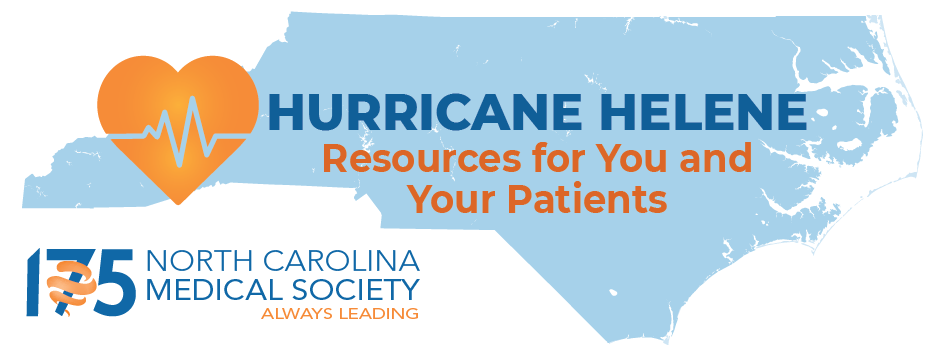
There are many false reports and misinformation being shared on social media about the response to Hurricane Helene
The NC Department of Public Safety has issued the following report after countless false reports and misinformation has spread across the state:
The public should get information about storm response and impacts from trusted sources like the State Emergency Response Team, National Weather Service, and other federal, state, county and local government sites. Be aware that Artificial Intelligence or AI-generated images are being circulated on social media that do not depict conditions on the ground.
Do your part to the stop the spread of rumors by doing three easy things:
- Find trusted sources of information.
- Share information from trusted sources.
- Discourage others from sharing information from unverified sources and question where information is coming from.
Stop the Spread of Misinformation
QUESTION: I saw a rumor shared on social media about Hurricane Helene response. Should I share it?
FACT: False information is being widely shared on social media channels, including AI-generated content and images. Nefarious actors and those with ill intent may be taking advantage of this situation by spreading false information. The public is encouraged to find trusted sources of information; share information from those trusted sources; and to discourage others from sharing information from unverified sources.
RUMOR: The state and federal government are doing nothing to respond to the ongoing disaster in Western North Carolina.
FACT: The NC State Emergency Response Team, which includes local, state, federal and military partners, along with power and cell phone agencies, private businesses and volunteer organizations, is working around the clock to save lives and provide humanitarian relief to Western North Carolina residents. This is a coordinated effort aimed at saving lives and to speed recovery for residents, businesses and municipalities in the impacted areas.
RUMOR: Checkpoints are being established and donations and volunteers are being turned away from Western North Carolina.
FACT: Roadways in Western North Carolina are still dangerous and impassible in many places. A recent landslide shows the potential for more serious incidents. In some areas, traffic is being rerouted to maintain availability of roadways for emergency response, coordinated disaster relief efforts and local traffic.
RUMOR: The state is discouraging donations in the wake of Hurricane Helene. Physical donations are being confiscated by state and federal officials.
FACT: The state is encouraging financial donations to the North Carolina Disaster Relief Fund at www.nc.gov/donate, or to a NC Volunteer Organization Active in Disaster. A list of these organizations can be found at www.ncvoad.org/members. The state is working with these organizations to stand up logistical operations to coordinate the collection and distribution of countless physical donations from across the state and country. Donations are not being confiscated by state and federal officials.
RUMOR: The state and federal government are discouraging volunteerism in Western North Carolina.
FACT: Coordinated volunteer disaster relief efforts are needed in Western North Carolina. We strongly encourage neighbors to continue helping neighbors in impacted areas. Those wishing to volunteer should register at www.nc.gov/volunteer in order to be connected with a NC Volunteer Organization Active in Helene response. Please do not self-deploy to Western North Carolina unless you are working with an organization already providing services on the ground.
RUMOR: The FAA is restricting access to the airspace for Helene rescue and recovery operations.
FACT: The FAA is not restricting access for recovery operations. The FAA is coordinating closely with state and local officials to make sure everyone is operating safely in very crowded and congested airspace. Learn more.
RUMOR: FEMA is operating and controlling airports in western North Carolina.
FACT: FEMA is not controlling any airports in western North Carolina. Airport Managers and Airport Sponsors are the legal entities in charge of operating airports, even in Helene response. FEMA staff may be present at airports as they deploy supplies and stage for Helene response. Airports are critical for accessing impacted NC communities for response and recovery efforts for partners including FEMA.
There are many false reports and misinformation being shared on social media about the response to Hurricane Helene. Additional reliable information regarding Helene can be found at www.ncdps.gov/helene.
En español haga clic aqui
Two American Scientists Win Nobel Prize for Discovery of microRNA

STOCKHOLM (AP, Daniel Niemann, Mike Corder, Maria Cheng) — Two scientists won the Nobel Prize in physiology or medicine on Monday for their discovery of microRNA, tiny bits of genetic material that serve as on and off switches inside cells that help control what the cells do and when they do it.
If scientists can better understand how they work and how to manipulate them, it could one day lead to powerful treatments for diseases like cancer.
The work by Americans Victor Ambros and Gary Ruvkun is “proving to be fundamentally important for how organisms develop and function,” according to a panel that awarded the prize in Stockholm.
Ambros and Ruvkun were initially interested in genes that control the timing of different genetic developments, ensuring that cell types develop at the right time.
Their discovery ultimately “revealed a new dimension to gene regulation, essential for all complex life forms,” the panel said.
What is the Nobel Prize for?
RNA is best known for carrying instructions for how to make proteins from DNA in the nucleus of the cell to tiny cellular factories that actually build the proteins. MicroRNA does not make proteins, but helps to control what cells are doing, including switching on and off critical genes that make proteins.
Last year’s Nobel for medicine went to scientists who discovered how to manipulate one of those types of RNA, known as messenger RNA or mRNA, now used to make vaccines for COVID-19.
Ambros’ and Ruvkun’s revolutionary discovery was initially made in worms; they set out to identify why some kinds of cells didn’t develop in two mutant strains of worms commonly used as a research model in science.
“Their groundbreaking discovery revealed a completely new principle of gene regulation that turned out to be essential for multicellular organisms, including humans,” according to the citation explaining the importance of their work.
That mechanism has been at work for hundreds of millions of years and has enabled evolution of complex organisms, it said.
Ambros, currently a professor of natural science at the University of Massachusetts Medical School, performed the research at Harvard University. Ruvkun’s research was performed at Massachusetts General Hospital and Harvard Medical School, where he’s a professor of genetics.
Why does microRNA matter?
The study of microRNA has opened up approaches to treating diseases like cancer because it helps regulate how genes work in our cells, said Dr. Claire Fletcher, a lecturer in molecular oncology at Imperial College London.
Fletcher said there were two main areas where microRNA could be helpful: in developing drugs to treat diseases and in serving as possible indicators of diseases, by tracking microRNA levels in the body.
“If we take the example of cancer, we’ll have a particular gene working overtime, it might be mutated and working in overdrive,” said Fletcher. She said scientists might one day be able to use microRNA to stop such effects.
Eric Miska, a geneticist at Cambridge University, said the discovery by Ambros and Ruvkun came as a complete surprise, overturning what scientists had long understood about how cells work.
Their discovery of microRNA shocked many scientists, Miska said, explaining that such small bits of genetic material had never been seen before. The tiny fragments of RNA — the human genome has at least 800 — were later found to play critical roles in how our bodies develop.
Miska said there is ongoing work on the role of microRNA in infectious diseases like hepatitis and that it might also be helpful in treating neurological diseases.
Fletcher said the most advanced studies to date are reviewing how microRNA approaches might help treat skin cancer, but no drugs have yet been approved. She predicted that might happen in the coming years, adding that most treatments at the moment target cell proteins.
“If we can intervene at the microRNA level, it opens up a whole new way of us developing medicines,” she said.
How did Gary Ruvkun and Victor Ambros react?
The phone call from the Nobel panel is often a surprise, but there are certain signs that recipients and their families pick up on.
“Well, when a phone rings at 4:30 in the morning. ... It never happens here,” Ruvkun said.
“Natasha actually answered it,” Ruvkun added, referring to his wife. “And she goes: ‘He has a Swedish accent.’”
It took a little longer to rouse Ambros.
“Somebody called my son, who called my wife as my phone was downstairs,” he said.
Ruvkun knew immediately the impact the award would have on his life.
“Well, I just kept repeating in my mind, this changes everything because you know, the Nobel is just mythic in how it transforms the life of people who are selected,” Ruvkun said. “The Nobel Prize is a recognition that’s sort of 100 times as much press and celebration as any other award. So, it’s not part of a continuum. It’s a quantum leap.”
Going to pick up his award in December will be the third time he has been to a Nobel Prize ceremony in Stockholm after attending to watch his mentor Robert Horvitz receive the 2002 award and then his buddy Jack Szostak, who won in 2009.
“There’s a trip coming up. It will be the third, possibly the best,” Ruvkun said.
Ambros said he didn’t expect the award as he felt that the Nobel committee has already singled out RNA in the 2006 prize that went to his friends Andrew Fire and Craig Mello.
“It represents the recognition of how wonderful and unexpected discoveries come from a curiosity in basic science financed by taxpayer money. It’s a vitally important, probably the most important message, that this investment really pays off,” he said.
Last year, the Nobel Prize in physiology or medicine went to Hungarian-American Katalin Karikó and American Drew Weissman for discoveries that enabled the creation of mRNA vaccines against COVID-19 that were critical in slowing the pandemic.
The prize carries a cash award of 11 million Swedish kronor ($1 million) from a bequest left by the prize’s creator, Swedish inventor Alfred Nobel.
Nobel announcements continue with the physics prize on Tuesday, chemistry on Wednesday and literature on Thursday. The Nobel Peace Prize will be announced Friday and the Nobel Memorial Prize in Economic Sciences on Oct. 14.
Bipartisan State Board Unanimously Approves Measures to Help WNC Voters

Long list of measures aim to help Helene victims vote in 2024 election
The bipartisan State Board of Elections on Monday unanimously approved a long list of emergency measures to help Helene victims vote in the 2024 election and ensure election officials can provide accessible, safe, and secure voting options for residents of Western North Carolina. Read the final, signed resolution (PDF).
The 5-0 vote of Democrats and Republicans on the State Board came after extensive planning by the State Board in coordination with county election officials, public safety and emergency management officials, and the U.S. Postal Service. Watch recording of the State Board meeting (MP4).
The measures will apply to the following 13 counties, where infrastructure, accessibility to voting sites, and postal services remain severely disrupted after Helene:
- Ashe
- Avery
- Buncombe
- Haywood
- Henderson
- Madison
- McDowell
- Mitchell
- Polk
- Rutherford
- Transylvania
- Watauga
- Yancey
The provisions are also designed to help North Carolina voters living temporarily elsewhere inside or outside of the state or in disaster shelters to be able to vote. They also allow county boards of elections in the 13 counties the flexibility to modify early voting and Election Day voting sites and recruit additional poll workers to best accommodate their voters based on local conditions. And they allow election officials to continue to work with federal and state partners to provide election-related aid to the disaster counties, including temporary voting facilities and restrooms, generators, and other needs.
The emergency measures also include ways to get information about voting to voters housed in shelters and to western North Carolina in general. They were carefully crafted to avoid any detrimental effect on the integrity of the election or the security of ballots.
“These measures were put in place to ensure the victims of Helene can vote in the upcoming election and provide election officials in the hardest hit areas the tools they need to conduct a secure election under extraordinarily difficult conditions,” said Karen Brinson Bell, executive director of the North Carolina State Board of Elections. “Just like the people of western North Carolina, election officials are resilient. We are determined to get the job done for our neighbors and friends in western North Carolina.”
Measures approved by the State Board do all the following and more in the 13 counties:
- In-person voting:
- Facilitate in-person early voting by allowing county boards of elections to modify their approved early voting sites, days, and hours through a bipartisan, majority vote.
- Allow county boards to modify Election Day polling places by bipartisan, majority vote. This provision also allows county boards of elections, with the approval of the State Board executive director, to open a polling place in another county, provided that materials, tabulators and voting processes are kept separate for each precinct’s voters at that location.
- Allow county boards — by bipartisan, majority vote — to set up their board of elections office to permit any voter in the county to vote at that site, in the event voters are unable to get to their Election Day precinct voting site or are unsure of their voting location. Some county offices may also serve as an early voting site, which allows any voter of the county to vote during the early voting period.
- Absentee voting:
- Allow voters to request and receive an absentee ballot in person at their county board of elections office up until Nov. 4 — the day before the election. As always, the voter or voter’s near relative or legal guardian is required to complete an absentee request form with the required personal information for the voter, and that information must be verified by the county board as with any absentee request.
- Allow voters to drop off completed absentee ballots at Election Day polling places operated by the voters’ county board by 7:30 p.m. on Election Day.
- Allow voters or their near relatives or legal guardians to hand-deliver completed absentee ballots to another county board of elections in North Carolina or the State Board of Elections office, as long as the ballot is received by 7:30 p.m. on Election Day. The county or State Board then would ensure that those ballots are delivered to each voter’s county board of elections by Nov. 14 — the day before county canvass — to be counted. A log and chain of custody will be maintained to secure these ballots.
- Poll worker recruitment and assignment:
- Allow county boards – by bipartisan, majority vote – to appoint election officials who are registered to vote in other N.C. counties, to appoint emergency Election Day assistants and assign them to a precinct, and to reassign poll workers to different locations than their original assignment to ensure sufficient knowledge and expertise at each voting site.
- Multipartisan Assistance Teams (MATs):
- Allow county boards — by bipartisan, majority vote — to schedule Multipartisan Assistance Teams to assist with absentee ballot requests and absentee voting at disaster shelters and other places where disaster relief is provided to the public. These teams may receive and deliver to county boards completed absentee ballot envelopes for voters.
- Coordination with emergency officials:
- Ensure the State Board continues its ongoing coordination with the N.C. Division of Emergency Management to provide election-related aid to the disaster counties, including temporary voting facilities, generators, temporary restrooms, and other needs.
State law (Emergency powers (N.C.G.S. § 163-27.1)) authorizes the State Board to exercise emergency powers to conduct an election where the normal schedule is disrupted by a natural disaster.
In approving the resolution, the State Board found that Tropical Storm Helene created an unprecedented natural disaster for Western North Carolina that disrupted and continues to disrupt the schedule of the general election. The storm has taken many lives, severely damaged public and private property, and caused significant and lasting disruptions to essential utility services and systems, including power, internet, cell service, water, and transportation.
For comprehensive information on Voting After Helene, go to ncsbe.gov/Helene.
CDC: Health Officials To Begin Screening Some Travelers for Marburg Virus

No confirmed cases of Marburg virus disease outside of Rawanda yet
The CDC announced Monday that health officials will soon start screening travelers from Rwanda to the US for Marburg virus. There are no confirmed cases of Marburg virus disease — a rare but deadly hemorrhagic disease similar to Ebola — outside of Rwanda, and officials have said that the current risk to the US is low. However, the Department of Health and Human Services said the CDC will begin public health entry screening next week in an effort to reduce the risk of the importation and spread of cases. As of Monday, there have been 56 confirmed cases of Marburg in Rwanda, with 36 people in isolation and treatment, and 12 deaths, according to the Ministry of Health. Many of the cases are in health care workers, the CDC says.
NCIR Unavailable Monday from 9 - 11pm

Due to maintenance, the North Carolina Immunization Registry (NCIR) will be unavailable from 9:00PM - 11:00PM on Monday, October 7, 2024.
- Please use your contingency policy to document any doses administered during this time, so you are able to enter them into the NCIR at a later time.
- If needed, in the NCIR menu under Reports, there is a "new client form" available for both Adults and Children that can be printed out and/or saved prior to downtime and used for documenting administered doses.
- Documents will be shared on LHD call
- Printed copies are distributed with vaccine orders that are delivered, not shipped
Note, Some LHD are not yet able to access the internet or NCIR. This message is for those who are using NCIR.
Helene Relief Efforts Stats-to-Date

As relief efforts continue in Western North Carolina there is a lot of misinformation and untrue statistics being disseminated. Here are some facts you should know.
- 1,440+ air rescues to date
- 515 emergency personnel with 95 fire engines
- 717 EMS personal with 350 ambulances
- 1475 state activated National Guard
- 400 active-duty soldiers in region
- 500 active-duty soldiers enroute to support
- 50 rotary wing assets (21 from EMAC)
- 22 shelters operational with 915 occupants & 102 pets
- FEMA Assistance:
- 83,000 registered
- $27m in disbursements to date
(updated 10/05/24)
Small Business Administration Opens Three Centers to Help Western NC
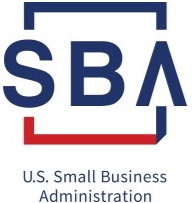
SBA Opens Three Centers in Aftermath of Helene
WASHINGTON – Low-interest disaster loans from the U.S. Small Business Administration (SBA) are available to businesses and residents in North Carolina following the announcement of a Presidential disaster declaration for Tropical Storm Helene that began on Sept. 25.
“SBA’s mission-driven team stands ready to help small businesses and residents in North Carolina impacted by this disaster in every way possible under President Biden’s disaster declaration for certain affected areas,” said SBA Administrator Isabel Casillas Guzman. “We’re committed to providing federal disaster loans swiftly and efficiently, with a customer-centric approach to help businesses and communities recover and rebuild.”
The disaster declaration covers Alexander, Alleghany, Ashe, Avery, Buncombe, Burke, Caldwell, Catawba, Clay, Cleveland, Gaston, Haywood, Henderson, Jackson, Lincoln, Macon, Madison, McDowell, Mitchell, Polk, Rutherford, Transylvania, Watauga, Wilkes and Yancey counties and The Eastern Band of the Cherokee Indians in North Carolina which are eligible for both Physical and Economic Injury Disaster Loans from the SBA. Small businesses and most private nonprofit organizations in the following adjacent counties are eligible to apply only for SBA Economic Injury Disaster Loans (EIDLs): Cherokee, Graham, Iredell, Mecklenburg, Surry, Swain and Yadkin in North Carolina; Rabun, Towns and Union in Georgia; Cherokee, Greenville, Oconee, Pickens, Spartanburg and York in South Carolina; Carter, Cocke, Greene, Johnson, Sevier, and Unicoi in Tennessee; and Grayson in Virginia.
LOCATIONS
- Asheville Business Recovery Center
Asheville Chamber of Commerce
36 Montford Ave.
Asheville, NC 2881
M-F - 9am - 6pm
Sat.- 9am - 3pm
Sun. - Closed - Boone Business Recovery Center
Appalachian Enterprise Center
130 Poplar Grove Connector
Boone, NC 288607
M-F - 8am - 6pm
Sat. - 9am - 3pm
Sun. - Closed - Charlotte Disaster Loan Outreach Center
US Small Business Administration District Office
6302 Fairview Rd., STE 300
Charlotte, NC 28210
M-F - 8am - 5pm
Sat. - Closed
Sun. - Closed
Walk-ins are welcome, but you can schedule an appointment at https://lnkd.in/gCk4SN64 .
Disaster survivors should not wait to settle with their insurance company before applying for a disaster loan. If a survivor does not know how much of their loss will be covered by insurance or other sources, SBA can make a low-interest disaster loan for the total loss up to its loan limits, provided the borrower agrees to use insurance proceeds to reduce or repay the loan.
Businesses and private nonprofit organizations of any size may borrow up to $2 million to repair or replace disaster-damaged or destroyed real estate, machinery and equipment, inventory, and other business assets.
For small businesses, small agricultural cooperatives, small businesses engaged in aquaculture and most private nonprofit organizations, the SBA offers Economic Injury Disaster Loans (EIDLs) to help meet working capital needs caused by the disaster. Economic Injury Disaster Loan assistance is available regardless of whether the business suffered any physical property damage.
Disaster loans up to $500,000 are available to homeowners to repair or replace disaster-damaged or destroyed real estate. Homeowners and renters are eligible for up to $100,000 to repair or replace disaster-damaged or destroyed personal property.
Interest rates are as low as 4% for businesses, 3.25% for nonprofit organizations, and 2.813% for homeowners and renters, with terms up to 30 years. Interest does not begin to accrue, and monthly payments are not due, until 12 months from the date of the initial disbursement. Loan amounts and terms are set by the SBA and are based on each applicant’s financial condition.
Building back smarter and stronger can be an effective recovery tool for future disasters. Applicants may be eligible for a loan amount increase of up to 20% of their physical damages, as verified by the SBA for mitigation purposes. Eligible mitigation improvements may include a safe room or storm shelter, sump pump, French drain or retaining wall to help protect property and occupants from future disasters.
“SBA’s disaster loan program offers an important advantage–the chance to incorporate measures that can reduce the risk of future damage,” said Francisco Sánchez, Jr., associate administrator for the Office of Disaster Recovery and Resilience at the Small Business Administration. “Work with contractors and mitigation professionals to strengthen your property and take advantage of the opportunity to request additional SBA disaster loan funds for these proactive improvements.”
With the changes to FEMA’s Sequence of Delivery, survivors are now encouraged to simultaneously apply for FEMA grants and SBA low-interest disaster loan assistance to fully recover. FEMA grants are intended to cover necessary expenses and serious needs not paid by insurance or other sources. The SBA disaster loan program is designed for your long-term recovery, to make you whole and get you back to your pre-disaster condition. Do not wait on the decision for a FEMA grant; apply online and receive additional disaster assistance information at sba.gov/disaster.
Applicants may also call the SBA’s Customer Service Center at (800) 659-2955 or send an email to [email protected] for more information on SBA disaster assistance. For people who are deaf, hard of hearing, or have a speech disability, please dial 7-1-1 to access telecommunications relay services.
The filing deadline to return applications for physical property damage is Nov. 27, 2024. The deadline to return economic injury applications is June 30, 2025.
NC HealthConnex Helps You Find Clinical Information for Displaced Patients

The NC HealthConnex team is committed to supporting those most in need in western North Carolina impacted by Hurricane Helene. The NC HealthConnex Clinical Portal is a web-based application that allows providers to access critical clinical information such as medical history, medications and treatment plans for displaced patients.
Here are some steps you need to gain access based on your current participation status with the NC HIEA.
If you currently have a Full Participation Agreement:
- A Full Participation Agreement and login credentials are required to utilize this service.
- Current participants can request credentials by contacting the NC HealthConnex Help Desk at [email protected]. For after hours or weekend support, please call 919-531-2700 for immediate assistance.
- Providers with credentials can access the portal from any web browser by visiting https://portal.nchealthconnex.net.
- After searching for a patient, you will need to click “Declare Patient Relationship” to look up patients with whom you do not have a previous treatment relationship. This action will attest that you have a reason to be accessing this patient’s information.
- To get started using the NC HealthConnex Clinical Portal, please see this Quick Start Reference Guide or view this demonstration video.
If you have a Submission Only Participation Agreement:
- You will need a Full Participation Agreement in order to gain access to the NC HealthConnex Clinical Portal. A Submission Only agreement is not sufficient.
- In order to switch to a Full Participation Agreement, please contact the NC HIEA Provider Relations team via email at [email protected] or via phone at 919-754-6912.
- In order to facilitate timely patient care, the provider relations team is prepared to expedite requests for affected providers.
If you do not have an agreement on file with the NC HIEA:
- The NC HIEA can expedite enrollment for new providers in the western part of the state and can provide training on the use of systems, etc. Please contact the NC HIEA Provider Relations team via email at [email protected] or via phone at 919-754-6912.
If you are a user of the NC HealthConnex Clinical Portal and experience any issues over the weekend, you will need to call the Help Desk at 919-531-2700.
NCMS Working to Help You Rebuild. Please Answer a Few Questions about Helene's Impact to Your Practice
 Hurricane Helene left a path of destruction across Western North Carolina and now many physicians are without the means to continue their work of healing. The North Carolina Medical Society is collecting information on the impacts of the storm so we can assess where to allocate resources.
Hurricane Helene left a path of destruction across Western North Carolina and now many physicians are without the means to continue their work of healing. The North Carolina Medical Society is collecting information on the impacts of the storm so we can assess where to allocate resources.
Please take a moment and answer a few questions for us about how you are doing and what you need.
Over 150,000 Customers Remain Without Power in Western NC
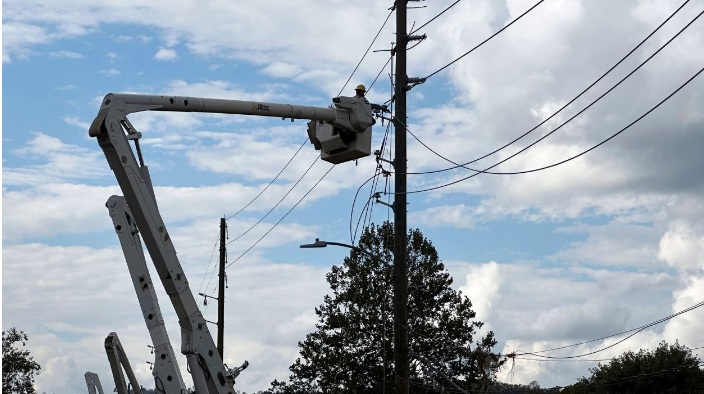
Over a week after Hurricane Helene tore through western North Carolina, over 150,000 customers remain without power as authorities also work to find missing people, restore water and continue recovery efforts in the devastated region.
In Buncombe County, which includes Asheville and Black Mountain, nearly 43% of customers are still in the dark, along with almost 57% of customers in nearby Henderson County, according to Poweroutage.com.
The small counties of Mitchell, Yancey and Avery, heavily impacted by Helene, also show high percentages of outages, with 64%, 57% and 45% of customers without power, respectively.
To donate to Hurricane Helene Relief click here.
Message from Office of Chief Medical Examiner

- Telephone
- Call NC211 (1-888-892-1162). To report a missing person or request a welfare check, press 1 once you are connected to reach an operator.
- Internet
- Visit www.nc211.org to submit a request for a person to be included in the search and rescue efforts coordinated by United Way – North Carolina.
Important Information for People Enrolled in the Special Supplemental Nutrition Program for Women, Infants and Children (WIC) Impacted by Hurricane Helene
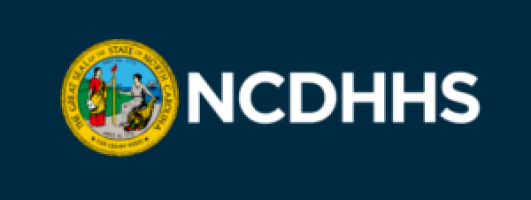
There are more than 250,000 people participating in the WIC program statewide
NCDHHS -- There is widespread damage and devastation following Hurricane Helene, and many participants of the Special Supplemental Nutrition Program for Women, Infants and Children (WIC) are impacted. There are more than 250,000 people participating in the WIC program statewide. WIC provides access to healthy food, breastfeeding support, nutrition education and referrals for health care and community services.
Families participating in WIC who may have relocated to a new area can go to any NC WIC agency to have a new eWIC card issued, or to request replacement of breastfeeding supplies, breast pumps, and food purchased with current WIC benefits and lost due to Hurricane Helene. A list of WIC agency closures related to Hurricane Helene can be found on the NC WIC landing page under Special Weather Announcement.
To Replace Your WIC Card:
- If your WIC card is lost, stolen or damaged, call eWIC Customer Service at 1-844-230-0813. WIC cards will be replaced by regular mail. You should receive your replacement card in five to seven days.
- Or visit any local WIC clinic to have your WIC card replaced.
To Check Your WIC Benefit Balance, Purchase History, and Account Information:
- Call eWIC Customer Service toll-free 24/7 at: 1-844-230-0813 OR
- Check your account at www.ebtEDGE.com OR
- Use the FIS ebtEDGE App
To Transfer WIC Benefits from Another State to NC:
- If your family was participating in WIC outside of NC and has relocated to NC as a result of Hurricane Helene, please visit any NC WIC agency to transfer benefits through a Verification of Certification.
Other things you can do at www.ebtEDGE.com or on the ebtEDGE App:
- Set, change or unlock your PIN
- View transaction history
- View future benefits
- Order a replacement card
- Recover password or username
- View a store location where WIC benefits can be used
The North Carolina WIC Program is available statewide through local health departments, community and rural health centers, and community action agencies that provide WIC Program services. To apply for the WIC program, participants must meet eligibility requirements and meet with a nutritionist or other health professional. If you have any questions, you can contact your local WIC clinic or visit our website at www.ncdhhs.gov/ncwic/eWIC. We also have a dedicated page of resources for people impacted by Hurricane Helene at www.ncdhhs.gov.
Replacement Benefits Available for Food and Nutrition Services Recipients Impacted by Hurricane Helene

Replacement Benefits Available for Food and Nutrition Services Recipients Impacted by Hurricane Helene
People in 23 Western North Carolina counties impacted by Hurricane Helene who are enrolled in Food and Nutrition Services now have access to replacement benefits on their Electronic Benefit Transfer (EBT) cards. The United States Department of Agriculture approved North Carolina to allow current FNS participants in the 23 counties to receive 70% of their total monthly September benefit back on their EBT card. The benefit replacement is automatic and does not require action from the FNS participant. This impacts more than 200,000 people in North Carolina and more than $24 million in replacement benefits.
“We’ve worked quickly with the federal government to have $24 million in SNAP benefits restored to 200,000 individuals’ EBT cards, in light of the fact that due to power outages and worse, many families have lost their food,” said NC Health and Human Services Secretary Kody H. Kinsley. “We will creatively use every tool we have to support folks impacted by Hurricane Helene now and for the long-haul.”
The approval is for FNS recipients in the following counties: Alexander, Alleghany, Ashe, Avery, Buncombe, Burke, Caldwell, Cleveland, Gaston, Haywood, Henderson, Jackson, Lincoln, Macon, Madison, McDowell, Mitchell, Polk, Rutherford, Transylvania, Watauga, Wilkes, and Yancey counties. The replacement benefits were automatically credited to impacted FNS recipients Electronic Benefits Transfer (EBT) cards Sunday morning and are available now.
There are three ways to check your FNS balance 24 hours a day, seven days a week:
- Visit www.ebtedge.com. Click on More Information under EBT Cardholder. You will be prompted to login and/or register your account.
- Download the ebtEDGE mobile app. The app is available as a free download on the Apple Store and Google Play.
- Call 1-888-622-7328 and follow the prompts to activate your PIN.
NCDHHS recently received approval for FNS participants to temporarily use their benefits to purchase hot food, including food prepared for immediate consumption, from authorized Electronic Benefits Transfer (EBT) retailers using their EBT card. FNS participants statewide will be able to purchase hot food through Nov. 3, 2024, and do not have to apply for the benefit.
Additionally, NCDHHS is actively working with USDA to receive federal authority to operate a Disaster Supplemental Nutrition Assistance Program. D-SNAP allows more people impacted by Hurricane Helene to qualify for food assistance benefits who are not already FNS recipients. More information will be communicated once NCDHHS has approval to implement the D-SNAP program.
NCDHHS recommends people using EBT cards check their balances regularly for unauthorized charges and take the following actions to keep their EBT card and account secure:
- You can check your balance and/or replace a lost or stolen EBT card by visiting www.ebtedge.com, using the EBT Edge mobile app or contacting the North Carolina EBT Call Center at 1-888-622-7328.
- Block out-of-state and online purchases using the EBT Edge website or mobile app.
- If you suspect card skimming, freeze your EBT card when not shopping so fraudulent purchases cannot be made using your card.
- Select a “difficult” PIN (i.e., not 1234 or 1111) for the EBT card and change the PIN regularly.
For information about the FNS program, visit www.ncdhhs.gov/fns or visit epass.nc.gov.
For information regarding Hurricane Helene and additional resources and flexibilities in place, please go to www.ncdps.gov/Helene and www.ncdhhs.gov/helene.
North Carolinians Enrolled in Food and Nutrition Services Can Use Benefits to Buy Hot Food Following Hurricane Helene

Change Remains in Effect Until November 3, 2024
People and families in North Carolina who are enrolled in the Food and Nutrition Services (FNS) program can use their benefits to purchase hot food. This temporary flexibility applies to all 100 counties in North Carolina and the nearly 700,000 households enrolled in the FNS program. The North Carolina Department of Health and Human Services is working closely with the U.S. Department of Agriculture to ensure people impacted by Hurricane Helene receive assistance as soon as possible.
"For people and families in North Carolina whose lives have been turned upside down by Hurricane Helene, a hot meal can provide a small comfort and sense of normalcy to their day," said Governor Roy Cooper. "This flexibility helps us make sure everyone has access to basic necessities while we continue to work to restore services to impacted communities."
"This benefit will support families who are reeling from the effects of Hurricane Helene with hot food they can purchase with their EBT card," said NC Health and Human Services Secretary Kody H. Kinsley. "We are 100% committed to the health and wellbeing of our friends, family, and fellow North Carolinians in every corner of western North Carolina — now and for the long haul."
North Carolinians in the FNS program can purchase hot food, including food prepared for immediate consumption, from authorized Electronic Benefits Transfer (EBT) retailers using their EBT card starting today. All authorized EBT vendors in the state have been notified about this change, which will remain in effect until Nov. 3, 2024.
This will ensure families who are not able to prepare food at home due to displacement or power outages still have access to warm meals. Customers do not have to apply for this benefit but should inquire first with the store to see if they can process hot food purchases with their FNS benefits. It is important to note this is for authorized retailers like gas stations or deli departments, not restaurants or other non-EBT authorized retailers. A map of retailers that accept EBT is available here.
North Carolina has been approved for a waiver that provides additional time for FNS participants residing in the affected disaster areas to report a food loss as a result of Hurricane Helene to their local Department of Social Services office due to displacement, transportation issues or other storm-related hardships through October 26, 2024.
NCDHHS has also applied for a waiver to automatically replace a portion of FNS benefits for individuals and families in the western North Carolina who have lost food purchased with their September FNS benefits. Once NCDHHS receives approval, the department will send out a notification with more details.
Additionally, NCDHHS is actively working with USDA to receive federal authority to operate a Disaster Supplemental Nutrition Assistance Program. D-SNAP allows more people impacted by Hurricane Helene to qualify for food assistance benefits who are not already FNS recipients. More information will be communicated once the department has approval to implement the D-SNAP program.
For information about the FNS program, visit www.ncdhhs.gov/fns or visit epass.nc.gov.
For information regarding Hurricane Helene and additional resources and flexibilities in place, please go to www.ncdps.gov/Helene and www.ncdhhs.gov/helene.
There is no right or wrong way to feel in response to the trauma of a hurricane. If you have been impacted by the storm and need someone to talk to, call or text the Disaster Distress Helpline at 1-800-985-5990. Help is also available to anyone, anytime in English or Spanish through a call, text or chat to 988. Learn more at 988Lifeline.org.
Hurricane Helene by the Numbers
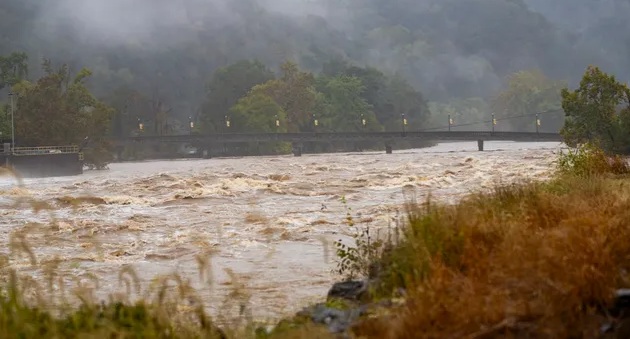
Hurricane Helene Already Ranked in Top 10 Deadliest Hurricanes
(USA Today) -- Helene hit Western North Carolina on the morning of Friday, Sept. 27, dumping inches of rain on communities that had already seen multiple inches of rain that week. By the time it reached the Carolinas, Helene was a tropical storm but less than 12 hours earlier it made landfall as a catastrophic Category 4 hurricane near Perry, Florida, on Thursday, Sept. 26 around 11 p.m. ET.
As it made its way inland, the storm caused millions to lose power, hundreds of homes and scores of roads were damaged or destroyed and has now left a rising death toll.
How many people have died because of Helene?
As of Thursday, Oct. 3, more than 200 people have died due to Hurricane Helene.
In North Carolina, 115 people have died. In addition, South Carolina has reported 41 fatalities, Georgia 33, Florida 19, Tennessee 11 and Virginia two for a total of 214.
Hundreds are still missing in Western North Carolina.
How much rain fell in Western North Carolina due to Tropical Storm Helene?
While Helene dumped rain on the western portion of the Carolinas, the area had already been drenched the week before by storms. Here's how many inches of rain communities saw between Tuesday, Sept. 24 and Saturday, Sept. 28, according to the National Weather Service.
- Busick in Yancey County had the most recorded rain in the period of time at 30.78 inches
- Spruce Pine: 24.12 inches
- Hendersonville: 21.96 inches
- Mountain Home: 17.09 inches
- Candler: 16.18 inches
- Tryon: 15.78 inches
- Grandfather Mountain: 15.42 inches
- Highlands: 14.86 inches
- Banner Elk: 14.85 inches
- Mills River: 13.26 inches
- Swannanoa: 13.21 inches
How high were wind gusts in Asheville, Western North Carolina from Helene?
Mt. Mitchell in Yancey County, which is around 35 miles from Black Mountain and is the highest peak in the United States east of the Mississippi River, had some of the highest gusts for wind in the Carolinas, hitting 106 mph at one point. Here are the top wind gusts in Western North Carolina, the Foothills and into the Piedmont, according to the National Weather Service.
- Frying Pan Mountain, just outside of Waynesville, saw wind gusts of 78 mph.
- Charlotte saw wind gusts of 66 mph
- Kings Mountain saw wind gusts of 56 mph
- Rutherford County, home to Lake Lure and Chimney Rock, saw gusts of 55 mph
- Spruce Pine saw wind gusts as high as 50 mph
- Asheville saw wind gusts of 46 mph
What did the rivers in Western NC crest at during Helene?
Rivers across the region still remain swollen a week after Helene first hit down on the region. On Sept. 27, rivers burst from their banks surpassing major flood stages by more than 10 feet in some areas. Rivers overtook communities across Western North Carolina, almost swallowing whole communities leaving nothing behind but mud and debris.
At its peak, the French Broad River in Fletcher crested at 30.31 feet on Sept. 27 as Helene moved through the area, according to the North Carolina State Climate Office out of North Carolina State University. In Asheville, the French Broad hit 24.67 feet, 1.5 feet above its previous highest crest. Further downstream at Blantyre, the river surpassed its 1916 crest of 27.1 feet to hit 27.38 feet before the gauge stopped reporting on Friday afternoon.
The Swannanoa River at Biltmore crested at 26.1 feet, more than five feet above what it did at its maximum in 1916 and slightly above the apparent 26-foot crest in April 1791, noted the climate office.
How many National Guard members are deployed in Western North Carolina, Asheville?
National Guard members across 16 states in the U.S. have been activated to provide assistance to areas impacted the most by Hurricane Helene. In North Carolina, the National Guard has over 1,100 soldiers and airmen on active duty and is making use of nearly 400 vehicles, including 26 aircraft, according to the U.S. Department of Defense.
President Joe Biden, who visited the area on Wednesday, announced that he has dispatched 1,000 troops to reinforce the North Carolina National Guard with relief efforts.
All together around 6,700 guardsmen are providing support to these different communities, according to the U.S. Department of Defense.
Deadliest hurricanes in the United States
The recent death toll attributed to Hurricane Helene makes it the fifth deadliest hurricane to make landfall in the U.S. mainland since 1950 and the deadliest since Katrina in 2005, according to reports from USA TODAY. Here's a look at some of the deadliest hurricanes to have hit the U.S.
The 10 deadliest hurricanes, based on National Hurricane Center information, are listed below by their rank, name, year and number of deaths.
- Katrina, 2005: 1,392
- Audrey, 1957: 416
- Camille, 1969: 256
- Sandy, 2012: 219
- Helene (preliminary), 2024: 214
- Diane, 1955: 184
- Ian, 2022: 156
- Agnes, 1972: 122
- Harvey, 2017: 103
- Hazel, 1954: 95
Vice President Kamala Harris Visits Western NC in Helene Aftermath

Harris Pledges Ongoing Federal Support
Democratic presidential nominee Kamala Harris pledged ongoing federal support and praised the work of strangers helping strangers as she visited North Carolina on Saturday in the aftermath of Hurricane Helene, her second trip in four days to the disaster zone.
Harris opened her visit by attending a briefing with state and local officials, where she thanked “those who are in the room and those who are out there right now working around the clock.”
She promised federal assistance would continue to flow and added praise for the “strangers who are helping each other out, giving people shelter and food and friendship and fellowship.”
Harris met with North Carolina Gov. Roy Cooper (D), Federal Emergency Management Agency (FEMA) Administrator Deanne Criswell, Charlotte Mayor Vi Lyles (D) and Asheville Mayor Esther Manheimer (D). Democratic gubernatorial candidate Josh Stein was also present for Harris’s visit.
“The work that’s happening here that is so positively impacting so many people is really an example of the best we can do when we bring resources together at the federal, state and local level, and tap into the kind of collegiality that produces results,” Harris said during a briefing with local officials on the response to the storm.
Harris announced the Biden administration had added Mecklenburg County, the second-most populous county in North Carolina, to a major disaster declaration following the hurricane. The move will free up additional resources to help residents get assistance with home repairs, purchasing generators and more.
The vice president praised local officials and residents for “helping each other out, giving people assistance in every way that they need, including shelter, food and friendship and fellowship.”
“I think that these moments of crisis bring out some of the best of who we could be and who we are,” she said.
Cooper said during Saturday’s briefing that at least 68 people died as a result of the storm. The total death toll from Helene, which ripped through Florida, Georgia, South Carolina and North Carolina, has surpassed 200.
(article includes information from the Associated Press and The Hill)
Click here if you would like to make a tax-deductible donation to the NCMS Foundation Relief Fund
Click here if you would like to volunteer
Statement from Baxter International on IV Fluids
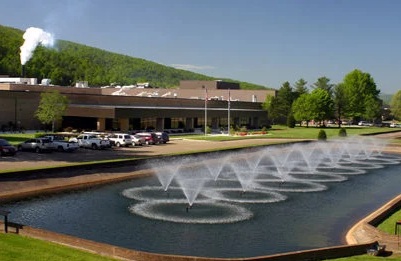
Baxter International Facility Sustains Critical Damage From Hurricane Helene
Statement from Baxter International:
As we have previously shared, Baxter International's manufacturing facility located in Marion, NC sustained critical damage from Hurricane Helene and is currently closed for production. As Baxter supplies approximately 60% of IV solutions used in North America, DUHS and hospitals across the U.S. are anticipating significant shortages of Baxter IV fluids.
Clinical and administrative leaders across the health system are working to develop a comprehensive conservation strategy. In an effort to ensure the continuity of patient care is maintained, we have consolidated our inventory of IV fluid for normal saline and lactated ringers to a central distribution point.
Important Points to Note for Duke University Hospital:
- If a patient is hemodynamically decompensating and there is a clinical emergency (including sepsis), proceed as you would normally do in ordering IV fluids to resuscitate the patient. The IV fluid supply will come from your clinical units’ supply and be replenished by restocking from the central distribution room. When a patient has stabilized, please follow previously distributed guidelines on appropriate use of IV fluids.
- If a patient does not have a clinical emergency and you are considering ordering IV fluids (bolus or continuous infusion) then you must contact your responsible covering attending for approval of that fluid order and this approval must be documented in a progress note. There will be an auditing process to confirm compliance with this process.
- Every team must review daily (starting today) their list of ongoing continuous IV fluids to confirm clinical need. We highly encourage all clinicians to add IV Fluids column to their patient lists.
- To order IV fluids, call the Fluid Distribution Center at 919-681-6851. Once confirmed, the fluids will be delivered to you.
As a reminder, the following clinical practices should be implemented immediately:
Maintenance Fluid
- When appropriate, limit maintenance fluids to a specific total volume or time frame.
- Consider oral hydration strategies when possible. We are increasing availability of electrolyte PO fluids in partnership with Food Services (ex. Gatorade and Pedialyte).
- Frequently review and consider elimination of continuous intravenous fluids (IVFs) for patients who are not NPO (or able to take an oral diet).
Procedural/OR
- Consider opportunities to reduce sterile fluid use (intravenous and irrigation) in procedural cases when appropriate.
Nursing Processes
- Extend use of IV and flush bags from 24 to 96 hours when changing tubing.
- Use small-volume bags for low infusion rates.
- Do not use 1L bags when a 100ml bag will do.
- Prime A lines with 500mL bags instead of 1L bags, changed every 4 days
- Eliminate use of Keep Vein Open (KVO) protocols.
- Limit quantities of IV bags placed in warmers to avoid early expiration.
- Verify ongoing fluid needs with providers before a new IV fluid bag is spiked.
- Finish IV bags from the OR or procedure area when going to unit from surgery rather than switching over to a new bag immediately.
Clinical Practice
- Do not empirically start IVF unless clear indications.
Our incident command center remains active and available to assist with any needs. Hours are from 7 a.m. – 7 p.m. To contact the command center, call 919- 684-2222.
We will continue to provide updates as conditions unfold. Our Supply Chain colleagues are working diligently to ensure we are able continue providing quality care to those who need us. Thank you all for your partnership and collaboration, and for your dedication to provide remarkable care to our patients, their loved ones, and each other.
Vice President Kamala Harris to Visit NC After Helene Saturday
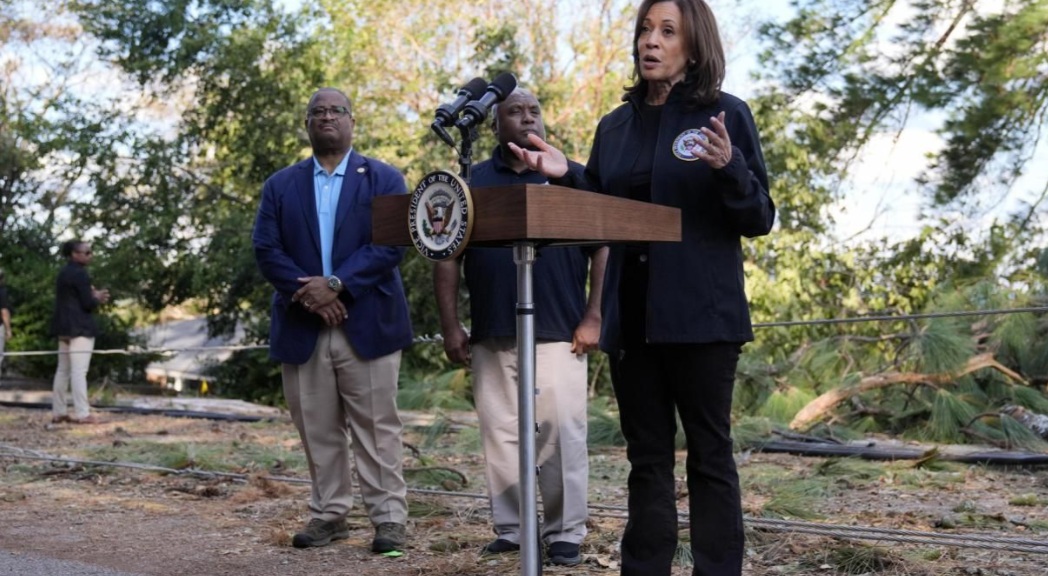
Vice President Kamala Harris in NC on Saturday to see Hurricane Helene Damage
(WRAL Staff) -- Vice President Kamala Harris will travel to North Carolina to survey the impacts of Hurricane Helene on Saturday, her office announced.
While in town, Harris will also be briefed on continued recovery efforts that are occurring in communities across the state and provide updates on federal actions that are being taken to support emergency response and recovery efforts in North Carolina and other states throughout the southeast.
It has not been announced what cities Harris will visit while in our state.
Hurricane Helene is now blamed for the deaths of 200 people across the south, and North Carolina has experienced a significant number of power outages, with nearly 245,000 outages reported Friday morning.
As of Thursday, North Carolina data shows at least 105 of those deaths were in North Carolina, including 72 people killed in Buncombe County alone. The ages range from 4 to 89.
NC Rep. David Rouzer gives update on Hurricane Helene
Congressman David Rouzer addresses Hurricane Helene relief efforts
Statement from Congressman David Rouzer:
|
The North Carolina Medical Society is also accepting donations to our NCMS Foundation Disaster Relief Fund. Click here for your tax-deducible donation.
Western North Carolina Medical Society Announces Emergency Medical Needs Fund
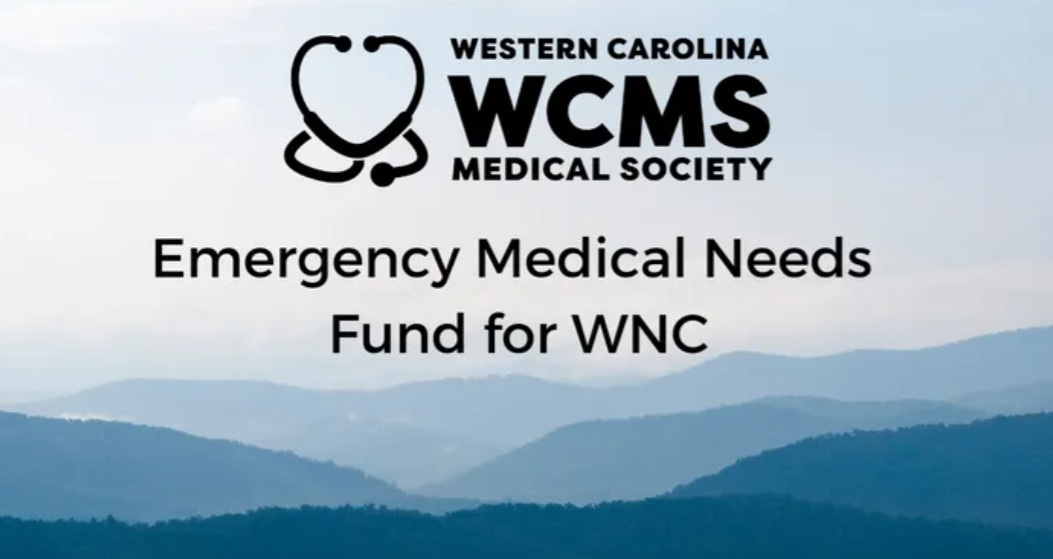
Urgent Appeal: Help WCMS Support Emergency Medical Needs in the Aftermath of Hurricane Helene
The North Carolina Medical Society is also accepting donations for relief to the people of Western North Carolina. Click here to give your tax-deductible donation.
NCMS Member Dr. Christine Knettel Travels to Western NC to Help After Helene

NCMS wants to hear your story of helping after Helene
NCMS wants to hear your stories too! Please reach out to Randy Aldridge at [email protected] to share how you are helping the needy in North Carolina following Helene.
Hurricane Helene Resources: Open Pharmacies in Western NC

UNC Health System Pharmacy has verified the following pharmacies are open and serving customers
List last updated 10/3/2024
|
Sona Pharmacy in Arden
|
|
Publix at Hendersonville Road
Sona Pharmacy in Asheville
|
|
Warrensville Drug Store
Walmart Pharmacy at Ashe County
|
|
Walgreen's Pharmacy at Blowing Rock Blvd
CVS Pharmacy at Blowing Rock Blvd
Walmart Pharmacy at Blowing Rock Blvd
|
|
Boone Drug & Healthcare at Deerfield
Boone Drug at Greenway
Boone Drug at King Street
Boone Drug at New Market
|
|
Avery Pharmacy & Health Care
|
|
CVS Pharmacy at Hendersonville Road
|
|
Walmart Pharmacy at Granite Falls
Granite Drug Center
|
|
Publix at South Market Village
Sam's Club Pharmacy in Hendersonville
Whitley Drugs Hendersonville Pharmacy
Walmart Pharmacy at Hendersonville Supercenter
Blue Ridge Health Pharmacy
Pardee Rx - Fleming
Shelton Compounding Pharmacy
Ingle's Pharmacy at Spartanburg Hwy
Ingle's Pharmacy at Howard Gap
|
|
Publix at Hickory
|
|
East Burke Pharmacy
|
|
CVS Pharmacy at Hudson
Walmart Pharmacy at Hudson
|
|
Regency Village Harris Teeter Pharmacy
|
|
Community Pharmacy at Caldwell Hospital
Medical Arts Pharmacy of Lenoir
Foothill's Pharmacy at Cross Roads
Cajah's Mountain Pharmacy
|
|
Drexel Discount Drug
Walgreens Pharmacy at Fleming Drive
Jay's Hometown Pharmacy
Jones Drugs
Morganton Drug
Table Rock Pharmacy
Walmart Pharmacy at Morganton Heights
|
|
Mountain City Pharmacy
|
|
Halsey Drug Company
|
Western NC Assistance for Patient Prescriptions, Vaccines, and Payer Resources

NC AHEC Releases Information on Prescriptions for Physicians in Western NC
Chris Weathington of NC AHEC has released the following information about prescriptions for you and your patients:
Assistance for Your Patients
Several emergency measures have been taken to help patients cope with the aftermath of the storm. The NC Board of Pharmacy have activated Board Rule .1815, which authorizes pharmacists to provide one-time emergency refill of up to a 90-day supply when the pharmacist is unable to obtain refill authorization from the prescriber due to a prescriber’s inability to provide medical services to the patient. This authority was specifically created for emergencies like this one. In addition, if you are trying to send your patient to a pharmacy to pick up needed medication and supplies, the Board of Pharmacy is developing a list of open pharmacies in the impacted area. You can find that list here
Vaccines for Children
If you have lost vaccine stock due to power outages in your practice, for the Vaccines for Children program, you should reach out directly to the VFC Storage and Handling Hotline at 877-873-6247. They can assist with determining viability, wasting doses, and next steps on placing replacement orders. We are in the process of working on solutions for private stock vaccines.
Payer Resources for Practices
NC Medicaid has updated its Medicaid Temporary Flexibilities Due to Hurricane Helene. You can find that information here. This includes information about the expanded ability for hospital swing beds, disaster relief applications available for health care providers, and more.
In addition, please note that many payers across the state have implemented additional flexibilities for practices in the impacted area, including in some instances waiving prior authorizations and allowing early refills, among other things.
UNC Health has released the following list of pharmacies that are open and serving customers:
|
Last Update: Oct. 3, 12:30 a.m. |
|
Sona Pharmacy in Arden
|
|
Publix at Hendersonville Road
Sona Pharmacy in Asheville
|
|
Warrensville Drug Store
Walmart Pharmacy at Ashe County
|
|
Walgreen's Pharmacy at Blowing Rock Blvd
CVS Pharmacy at Blowing Rock Blvd
Walmart Pharmacy at Blowing Rock Blvd
|
|
Boone Drug & Healthcare at Deerfield
Boone Drug at Greenway
Boone Drug at King Street
Boone Drug at New Market
|
|
Avery Pharmacy & Health Care
|
|
CVS Pharmacy at Hendersonville Road
|
|
Walmart Pharmacy at Granite Falls
Granite Drug Center
|
|
Publix at South Market Village
Sam's Club Pharmacy in Hendersonville
Whitley Drugs Hendersonville Pharmacy
Walmart Pharmacy at Hendersonville Supercenter
Blue Ridge Health Pharmacy
Pardee Rx - Fleming
Shelton Compounding Pharmacy
Ingle's Pharmacy at Spartanburg Hwy
Ingle's Pharmacy at Howard Gap
|
|
Publix at Hickory
|
|
East Burke Pharmacy
|
|
CVS Pharmacy at Hudson
Walmart Pharmacy at Hudson
|
|
Regency Village Harris Teeter Pharmacy
|
|
Community Pharmacy at Caldwell Hospital
Medical Arts Pharmacy of Lenoir
Foothill's Pharmacy at Cross Roads
Cajah's Mountain Pharmacy
|
|
Drexel Discount Drug
Walgreens Pharmacy at Fleming Drive
Jay's Hometown Pharmacy
Jones Drugs
Morganton Drug
Table Rock Pharmacy
Walmart Pharmacy at Morganton Heights
|
|
Mountain City Pharmacy
|
|
Halsey Drug Company
|
Don't Have Flood Insurance? You May be Eligible for Federal Disaster Aid

Flood insurance is rare in Western North Carolina
(Axios, Zachery Eanes) -- Just 0.5% of homes in the Western North Carolina counties hit hardest by Hurricane Helene were covered by the National Flood Insurance Program, according to an analysis by Reuters.
- In comparison, more than 40% of homes in Dare County, on the Outer Banks, had flood insurance policies.
Why it matters: A lack of flood insurance will make it more expensive and complicated for many residents of the mountains to recover from the devastation that Helene's massive rainfalls brought.
State of play: Experts say that the FEMA's existing flood maps, which show where people are required to buy flood insurance, underestimate the risks that storms like Helene can bring.
- FEMA's maps, for instance, do not take into account intense rainfall events or sea level rise that is becoming more common due to climate change, according to N.C. State researcher Georgina Sanchez.
- Jeremy Porter, head of climate implications research at the First Street Foundation, told the Washington Post they also don't take into account flooding from smaller water sources, like creeks and streams.
- That leads to many people not on the coast or directly next to a river to be excluded in flood maps, even if the risk could be growing, Reuters said.
Of note: People who have been affected by Helene without flood insurance can apply for up to $30,000 in federal disaster aid, Reuters noted. That, however, is just a fraction of the $250,000 worth of coverage available in the federal flood insurance program.
Click here for more on Federal Disaster Aid
FEMA Activates Transitional Sheltering Assistance for Those Displaced by Helene

Sheltering Assistance Allows for Temporary Hotel Stays
FEMA has activated Transitional Sheltering Assistance (TSA) for North Carolinians displaced by Tropical Storm Helene in Alexander, Alleghany, Ashe, Avery, Buncombe, Burke, Caldwell, Catawba, Clay, Cleveland, Gaston, Haywood, Henderson, Jackson, Lincoln, Macon, Madison, McDowell, Mitchell, Polk, Rutherford, Transylvania, Watauga, Wilkes and Yancey counties and for the Eastern Band of Cherokee Indians.
Residents in these counties who have applied for disaster assistance may be eligible to stay temporarily in a hotel or motel paid for by FEMA while they work on their long-term housing plan. People do not need to request this assistance. FEMA will notify them of their eligibility through an automated phone call, text message, and/or email, depending upon the method of communication they selected at the time of application for disaster assistance.
Individuals and households may be eligible if they cannot return to their disaster-damaged home and their housing needs cannot be met by insurance, shelters or rental assistance provided by FEMA or another agency.
Under the TSA program, FEMA pays the cost of room, taxes and non-refundable pet fees directly to participating hotels and motels. Pet fees will only be paid up to the approved limit of assistance for individual rooms. Survivors are responsible for all other costs, including laundry, restaurant/room service, parking, telephone, or movie rental.
Eligible survivors may stay in participating TSA hotels in Georgia, Kentucky, North Carolina, South Carolina, Tennessee, Virginia and West Virginia. To locate participating hotels, visit femaemergencyhotels.com/ and enter your FEMA registration number, obtained when you applied for FEMA assistance.
An initial eligibility review will be conducted 60-days after the check-in date. When eligibility ends, survivors will be notified by FEMA seven days prior to checkout date.
TSA participants may also be eligible for other federal financial help, including Displacement Assistance, Rental Assistance, Home Repair Assistance and other aspects of the Individual Assistance program.
To apply for assistance, homeowners and renters can:
- Go online to DisasterAssistance.gov.
- Download the FEMA App for mobile devices
- Call the FEMA helpline at 800-621-3362. Lines are open every day and help is available in most languages. If you use a relay service, such as Video Relay Service (VRS), captioned telephone or other service, give FEMA your number for that service.
For the latest information on North Carolina’s’ recovery from Hurricane Helene visit fema.gov/disaster/4827. Follow FEMA on X at x.com/femaregion4 or on Facebook at facebook.com/fema.
To view an accessible video about how to apply visit: Three Ways to Register for FEMA Disaster Assistance - YouTube.
For North Carolinians seeking general information, please visit ncdps.gov/helene.
Cancel Your Plans if You Want to See Fall Folliage in NC

Governor Cooper Says Tourists Not Wanted in Western NC Right Now
(Asheville Citizen Times, Will Hofmann) -- As peak leaf season approaches in the mountains, N.C. Gov. Roy Cooper told the Asheville Citizen Times that tourists are not wanted in Western North Carolina in the fallout of the historic, devastating floods that have been confirmed to have taken 97 lives in the state and devastated the region's infrastructure.
Cooper said he only wants people who are dedicated to response efforts coming to the region.
"Whenever you come to Western North Carolina you get emergency notifications that we don't want you here unless you are directly helping with the response," Cooper told the Citizen Times on Oct. 3.
"So we're continuing to ask people not to come. And that's tough for an area that was about to enter its peak season for tourism economy. But I've talked with people in the Chamber of Commerce, they understand that meeting people's immediate needs, saving lives, is first," he continued.
Visit North Carolina, the state's official destination marketing organization, has continued to issue a travel advisory warning to all who intend to visit the region typically known for its strong tourism industry as the leaves turn in the fall. Currently, the message is: Do not travel to the region as cities and towns continue to battle power and water outages.
"State and local officials strongly advise all motorists avoid travel in Western North Carolina due to the continued challenges and risks from riverine flooding, landslides, slope failures, road closures and downed trees," the Visit North Carolina advisory, updated Oct. 3, read. "Power and cell phone service outages are also widespread as are shortages of water, food and gas."
Cooper said the goal is to continue to expand rescue and recovery efforts, which would be hindered and strained by the additional resources and road space required to maintain tourists.
"We want to keep those roads open for utility trucks, for rescue personnel, for medical people, for supplies, for fuel – all of this transportation that is 10 times more than you would normally need roads just to bring in basic necessities for people who don't have them now," Cooper said.
Explore Asheville and the Buncombe County Tourism Development Authority have also put out information regarding resources being provided by the industry at this time. The authority issued an update on the status of the local tourism industry.
"People have always been drawn to Asheville and the mountains of Western North Carolina. We know many people around the country care deeply and want to support our community. It’s not just about what’s happening now, but about planning for the months and years ahead," the BCTDA and Explore Asheville said in a statement to the Citizen Times on Oct. 3.
"Right now, the focus is on taking care of area residents and workers and servicing the many first responders who have answered the call from all over the country — helping those impacted and addressing the economic and emotional toll at hand," the statement said.
The city of Asheville, along with a swath of other cities and towns across WNC, are facing crises after the floods caused by Tropical Storm Helene. Water is out for most of the city, and is not expected to return for weeks. Cell service continues to be spotty, if not unreliable. Whole districts of the town, like the River Arts District — a beloved tourism district near the French Broad — remain in ruins.
Through the storm, VisitNC has been working to address visitor displacement throughout the region, fielding 7,300 calls about the topic, according to the advisory. Many regional attractions are currently closed. The entire Blue Ridge Parkway in North Carolina is closed. The Biltmore is closed. The WNC Nature Center is closed. The Omni Grove Park Inn is closed.
While the leaf season had been expected to be vibrant and bring in thousands to the region, boosting local business, this fall is likely going to hurt as businesses attempt to recover. [Source]
Loss of Life Hits Grim Milestone Following Helene
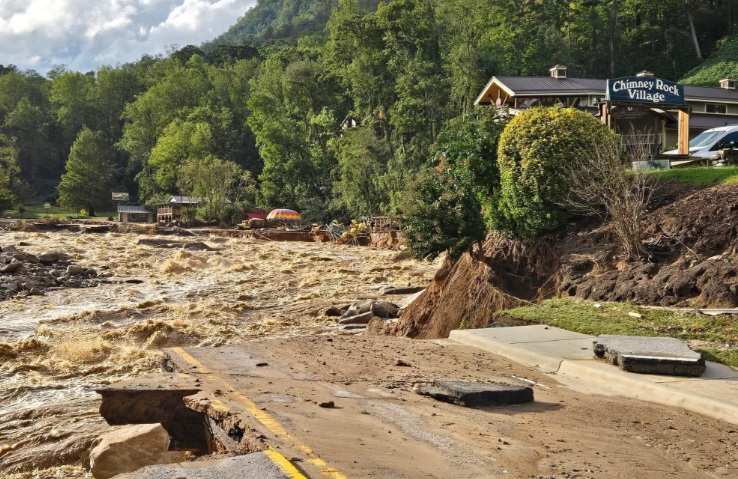
County Death Toll Update for Western NC
(USA Today, Jacob Wilt) -- The loss of life caused by Hurricane Helene passed a grim milestone Wednesday. Deaths caused by the hurricane nationwide surpassed 160 people, making Helene the second deadliest hurricane in the U.S. this century. That number was surpassed only by Katrina in 2005, which killed 1,392 people.
In North Carolina, officials say 73 people are confirmed dead thus far, with that number expected to rise as rescue crews search for missing persons. The vast majority of those deaths occurred in Buncombe County.
Here's the North Carolina death toll by county as of Thursday morning on Oct. 3. All data is provided by the North Carolina Department of Health and Human Services, unless otherwise noted.
- Yancey: Nine
- Henderson: Six
- Avery: Three
- Madison: Three
- Cleveland: Two
- Rutherford: Two
- Watauga: Two
- Burke: One
- Catawba: One
- Gaston: One
- Macon: One
- Mecklenburg: One
- Polk: One
- Yadkin: One
The NCDHHS confirmed a range of causes of death due to Helene's excessive wind and rainfall. The following are the most common causes of death:
- Unknown circumstances: 17
- Drowning: 15
- Landslide: Ten
- Wind/tree trauma: Five
- Motor vehicle drownings: Four
- Blunt force injuries: Four
- Motor vehicle crash: Three
- Other: Two
NC Justice Center Releases New Information on Tenants Rights After Natural Disaster

Refreshed information includes FEMA benefits for immigrants
Kate Woomer-Deters of the NC Justice Center has updated the information on Tenants Rights and it includes FEMA Benefits for Immigrants and Tenants in English and Spanish at this website: https://www.ncjustice.org/publications/resources-for-natural-disasters/
These materials answer such questions as:
- Can I cancel my lease or stop paying rent if I am a tenant and my home is damaged by a natural disaster?
- Is my landlord responsible for reimbursing me for personal property damaged in a disaster?
- If I am an immigrant or members of my family are immigrants, can we qualify for monetary assistance from FEMA?
- Is it safe to share my personal information with FEMA if I am an immigrant?
- What sort of benefits does FEMA provide to tenants, homeowners and those in “rent to own” contracts?
Other resources: Resources for Natural Disasters – North Carolina Justice Center (ncjustice.org)
'The Nation Has Your Back,' President Biden Makes Pledge to NC

"The nation has your back" promises President Joe Biden
Visits hard-hit North Carolina after Hurricane Helene
(USA Today, John Bacon, Beth Warre, Jorge L. Oritz) -- President Joe Biden traveled to the Carolinas on a Wednesday tour to survey devastation from Hurricane Helene as residents across much of the Southeast press on with the arduous task of rebuilding their shattered communities, homes and lives.
Biden visited Greenville, South Carolina, and later got an aerial view of the extensive damage in Asheville, North Carolina. Vice President Kamala Harris also made a trip to a highly impacted state, meeting with local officials and first responders in Augusta, Georgia.
"I'm here to say the United States – the nation – has your back,'' Biden said at an emergency command center in Raleigh alongside North Carolina Gov. Roy Cooper. "We're not leaving until you're back on your feet completely."










